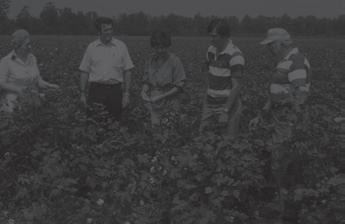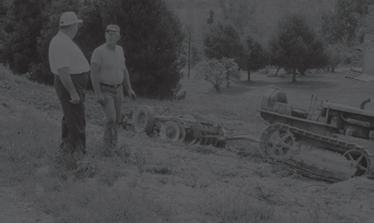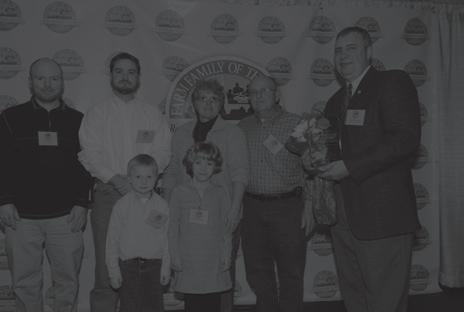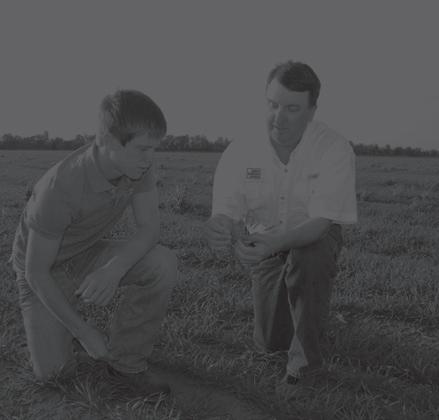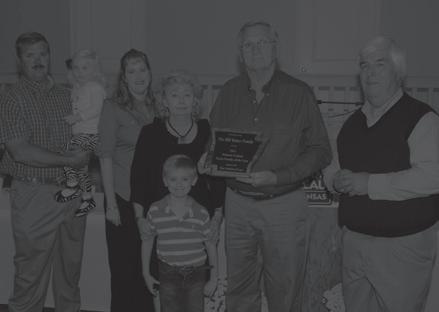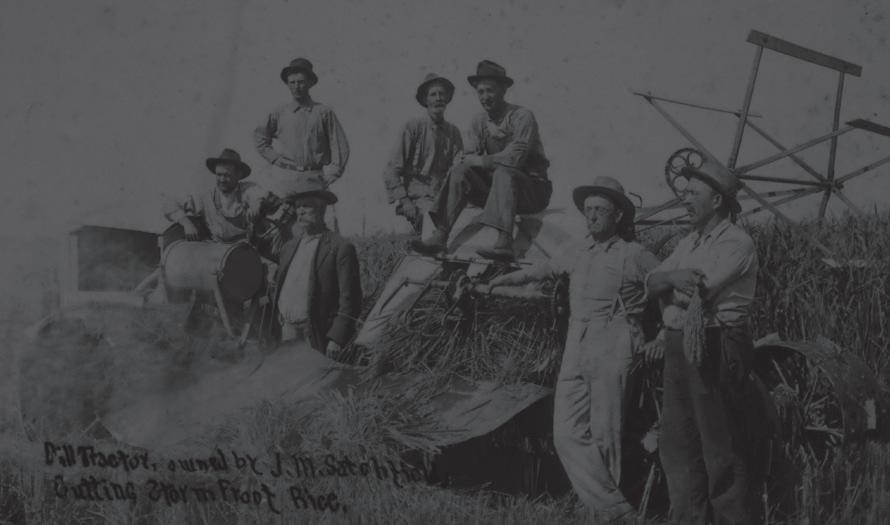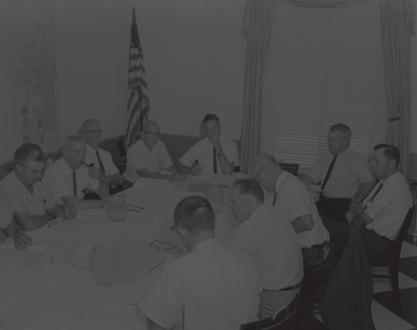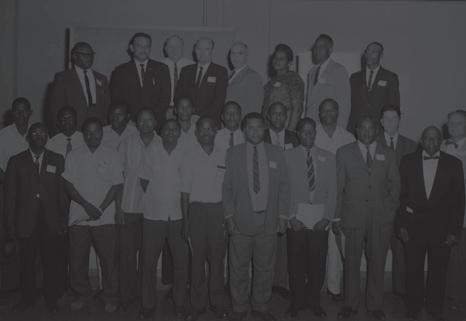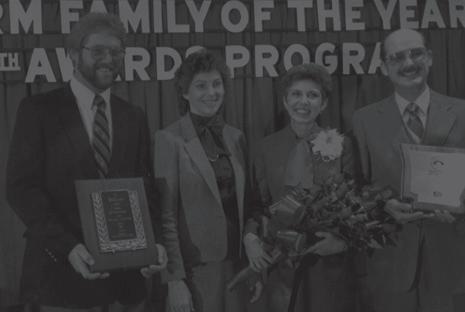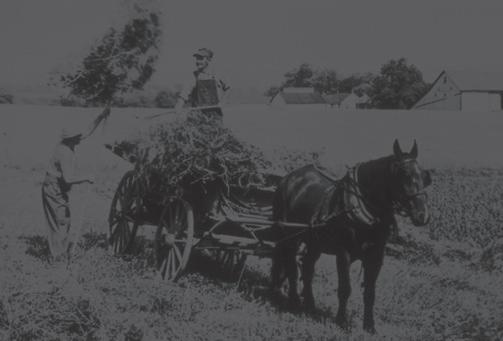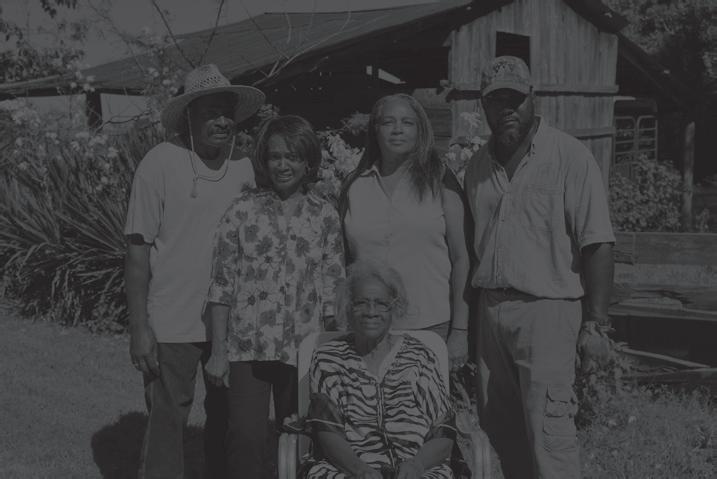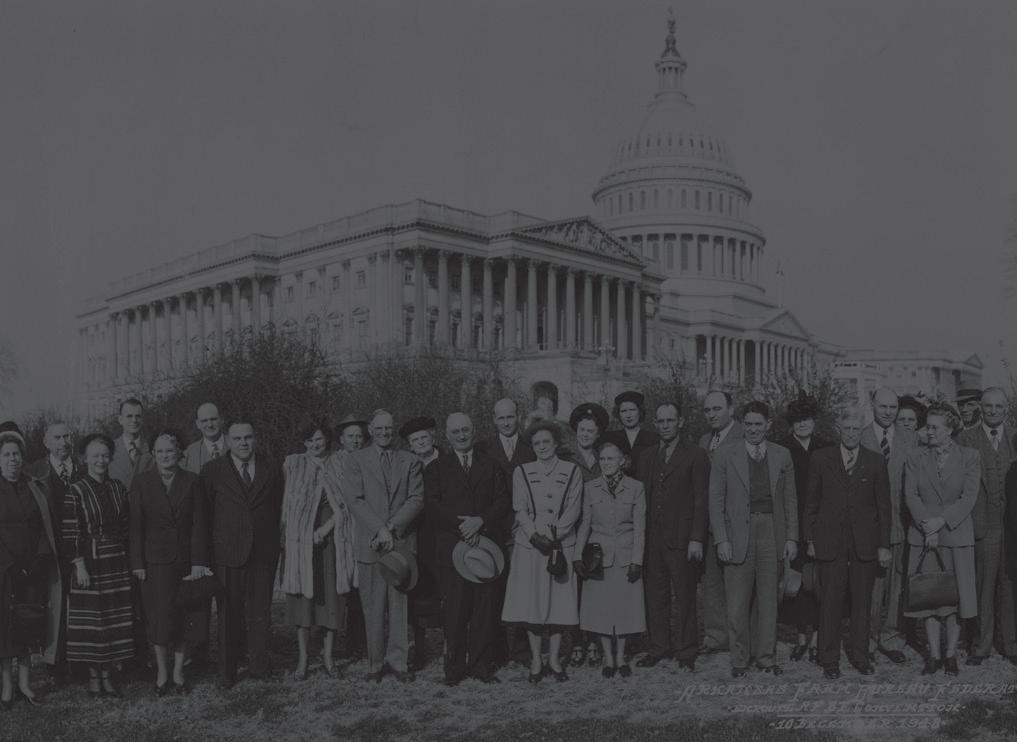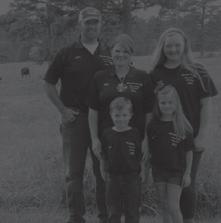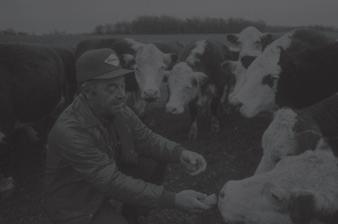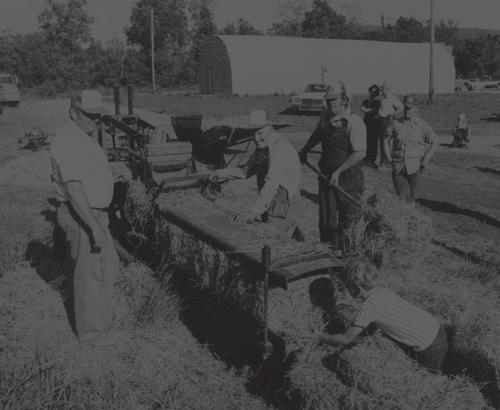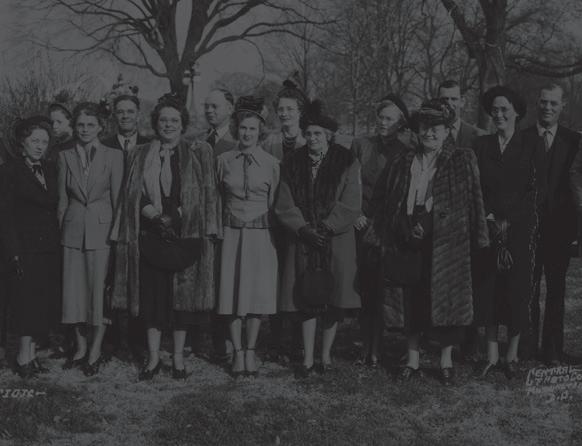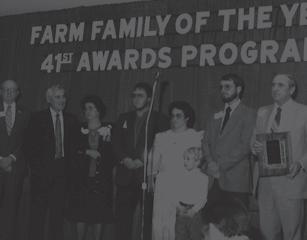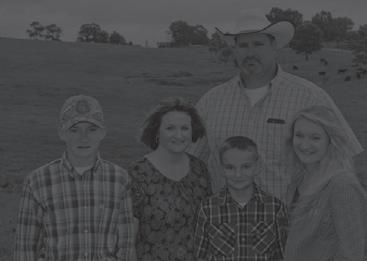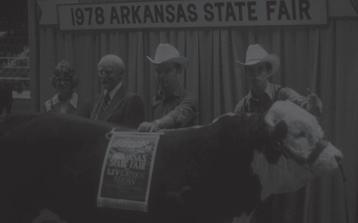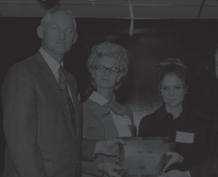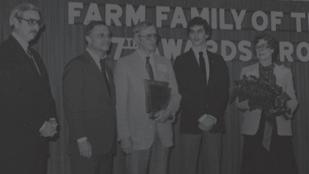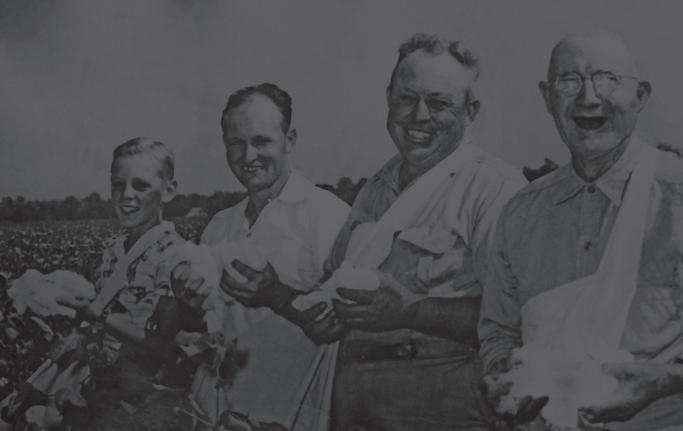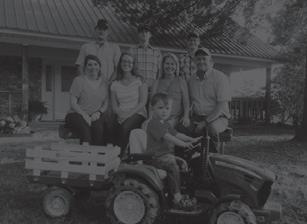
















Jeff Edwards Named Dean & Senior Associate VP for Division of Agriculture



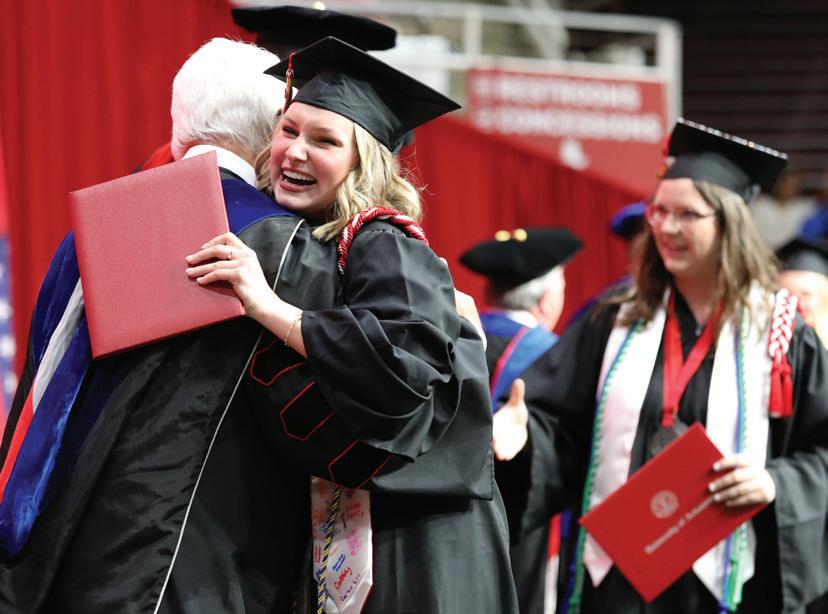
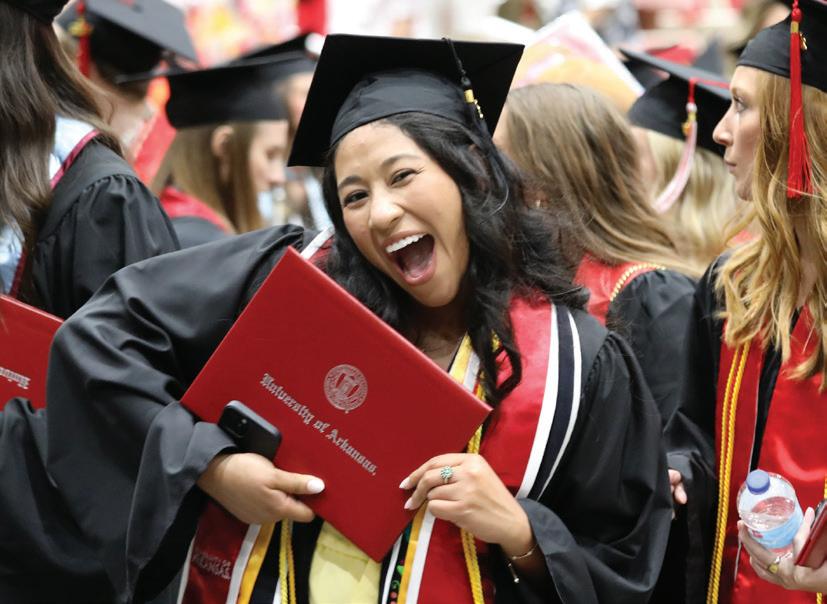
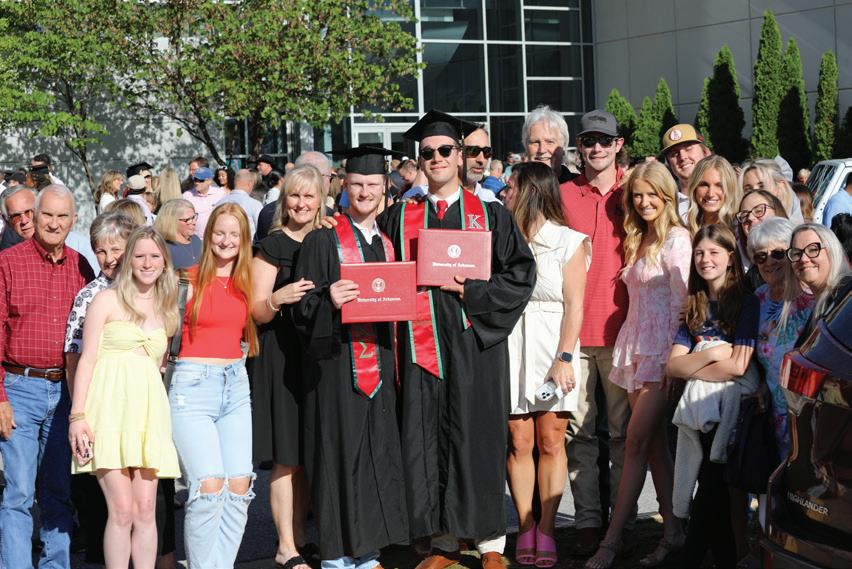
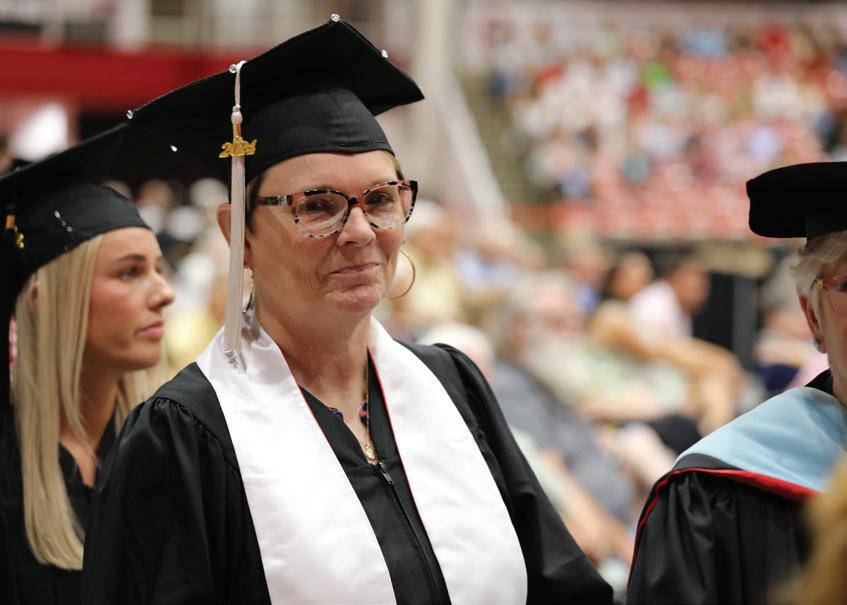
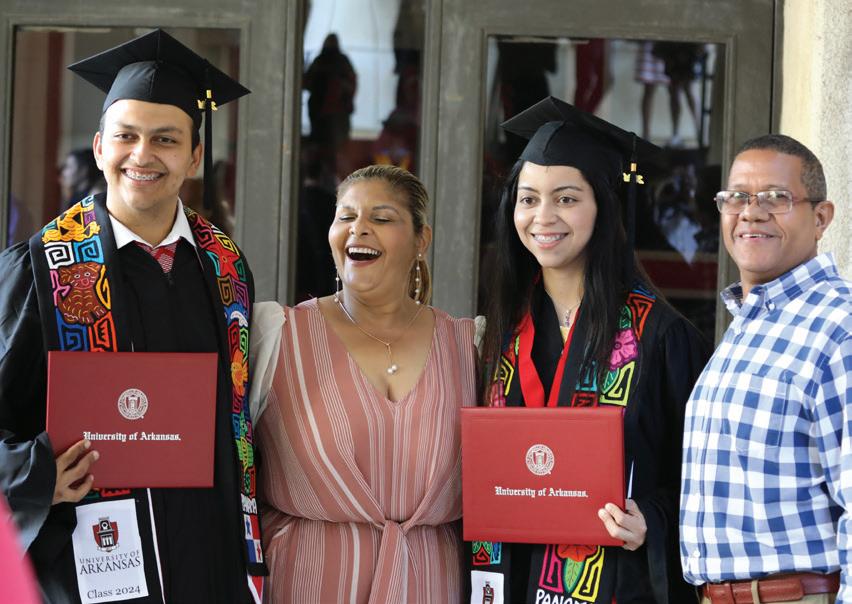
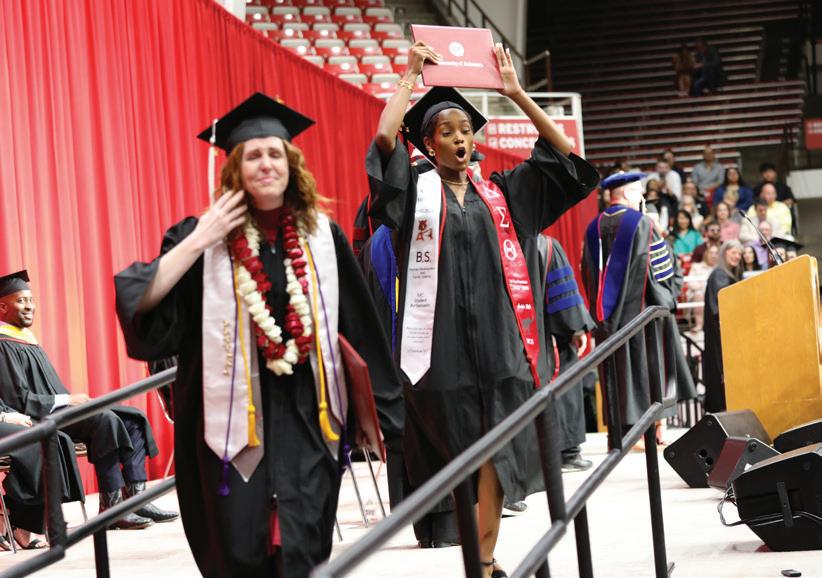
• Scott Walnofer, President
• Katie Branscum, Vice President
• Fendley Ragland, Past President
• Zach Andrews
• Natalie Bartholomew
• Kelly Chaney
• Will Clark
• Steven Cochran
• Maggie Jo Pruitt Hansen
• Kade Keith
• Darrin Malone
• Daniela Medina
• Sunil Perumalla
• Dan Rainey Arkansas Alumni Association Staff
• Deb Euculano, Director of Alumni Programs and Special Events, Arkansas Alumni Association
• Brandy Cox Jackson, Executive Director and Associate Vice Chancellor, Arkansas Alumni Association
• Lisy McKinnon, Director of Strategic Alumni Services, Arkansas Alumni Association
Ex Officio
• Kristin Seals, Associate Director of Facilities and Special Events, Bumpers College
The Arkansas Alumni Association has been the keeper of University of Arkansas traditions for more than 135 years. The mission is simple: to serve our alumni and to promote the University of Arkansas. You don’t have to be a graduate; friends of the university are welcome to join.
Your membership not only benefits you; it also benefits the university by supporting scholarships, student recruitment, Student Alumni Board, Homecoming, reunions, faculty awards and more.
Take a minute to sign up today. Call one of the numbers below or check our web site for more information on joining or renewing your membership.
479-575-2179 1-888-275-2586 alumni.uark.edu
Editor: Robby Edwards Photography: Robby Edwards, Ariel Romero, Ariel Scholten, Karli Yarber Designer: Ross Maute
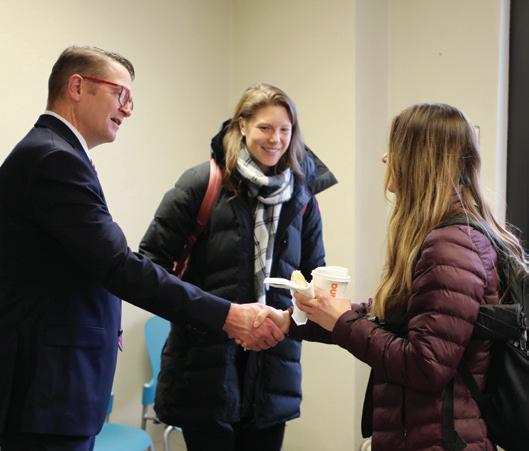

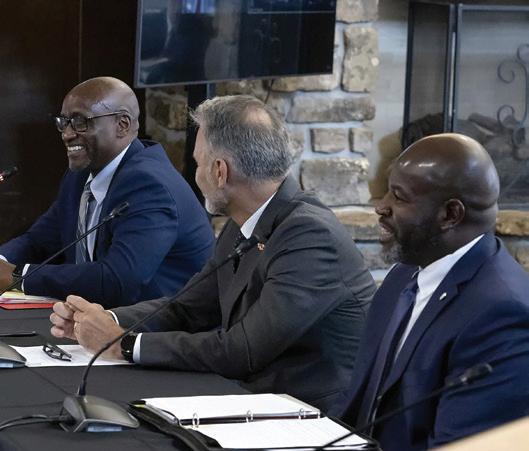

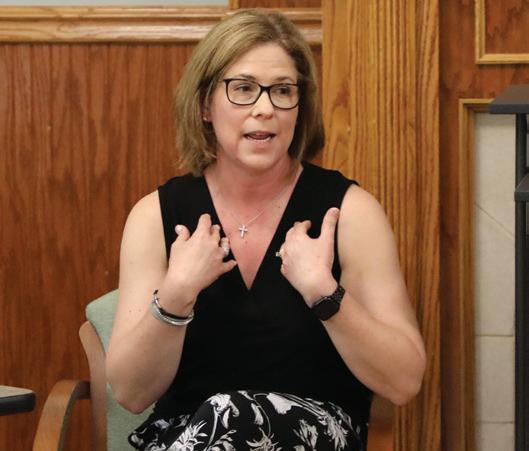

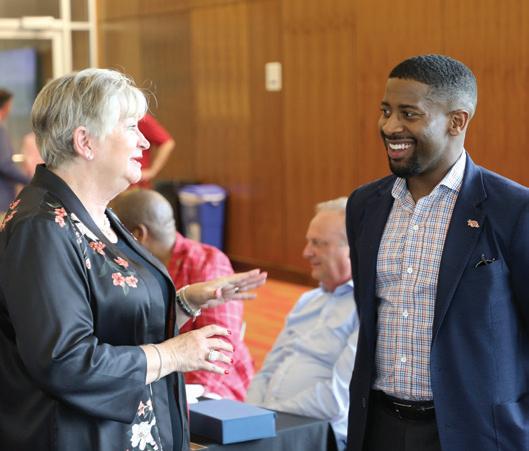


Two-Time Bumpers College Graduate Jeff Edwards Named Dean & Senior Associate VP
Trustees Praise Agreement Between U of
Jennifer James: Outstanding Alumnus Q&A
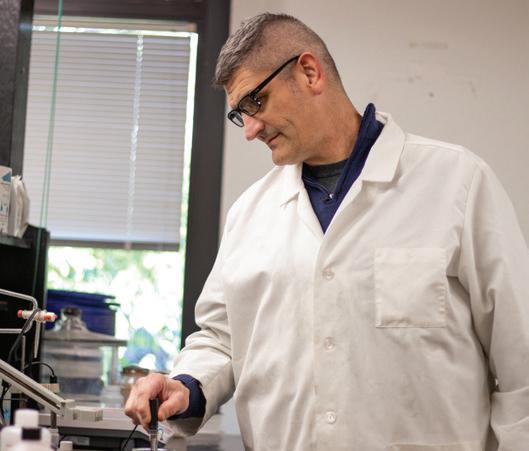
From a Bunker in Afghanistan to Two Bumpers College Degrees

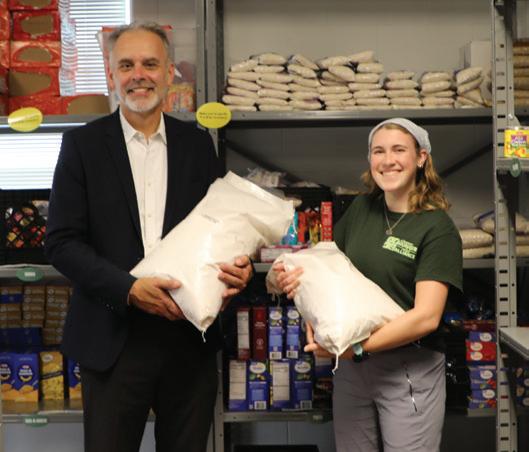
Bumpers College, Experiment Station Work with Arkansas Rice Companies, Donations Made to U of A’s Food Pantry

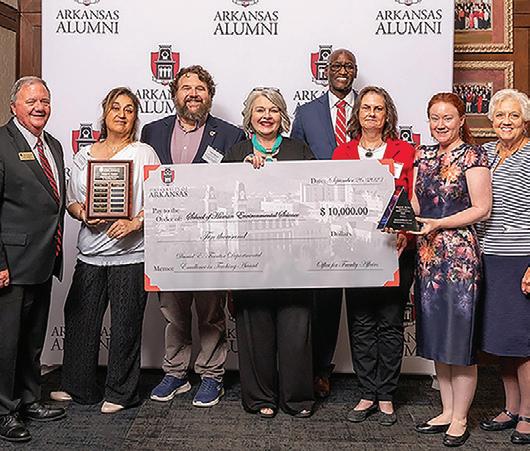
School of Human Environmental Sciences Wins Ferritor Teaching Award

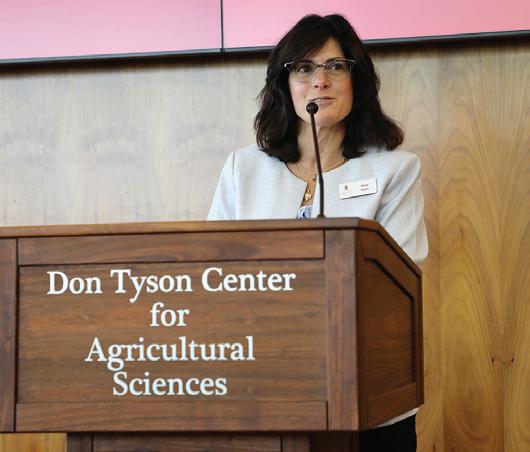
Respected Researcher, Teacher Savin Named Horticulture Department Head

Jeff Edwards earned his master’s degree and Ph.D. from the U of A, in agronomy and in crop, soil and environmental sciences, respectively.
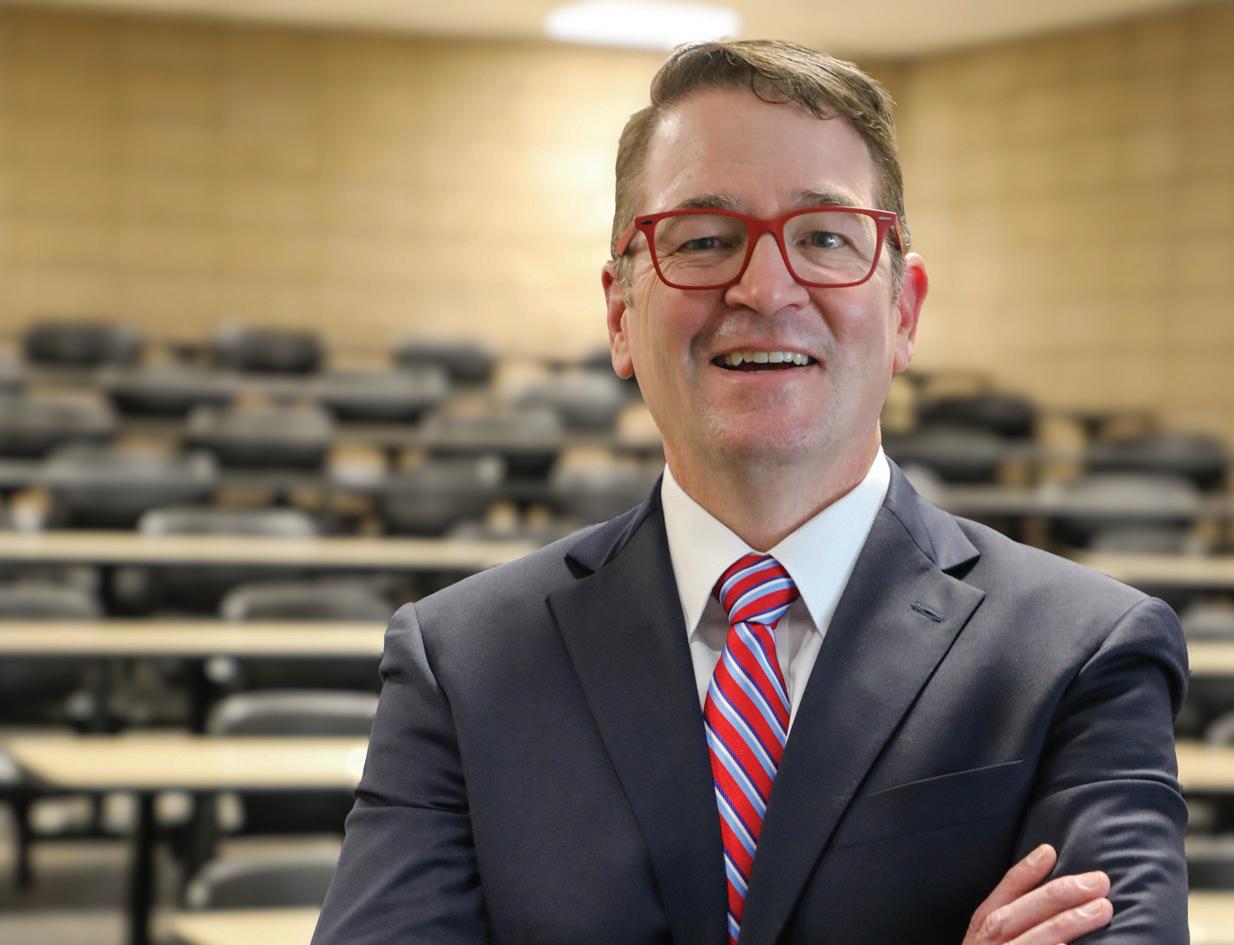

By Lyndsay Bradshaw
Jeff Edwards was named dean of Bumpers College and senior associate vice president for academic programs of the Division of Agriculture, effective Jan. 1, 2024, in a joint appointment by U of A Provost Terry Martin and U of A System Vice President for Agriculture Deacue Fields on Oct. 24.
Edwards succeeded interim Dean Jean-Francois Meullenet. In January, Meullenet began focusing exclusively on his role as senior associate vice president for agriculture research and director of the Arkansas Agricultural Experiment Station for the U of A System Division of Agriculture.
"I am thrilled Dr. Jeff Edwards is serving as the next dean of Bumpers College," Martin said. "Since joining the U of A in 2022, Dr. Edwards has accomplished a great deal in a short amount of time. He has proven himself to be an exceptional leader, and he is known throughout the country for his work in improving agricultural systems and environmental sustainability. In this new role, he continues to serve the U of A well, and I know he will help elevate the Bumpers College and its programs in the state, region and nation."
"I'm so pleased Dr. Jeff Edwards is leading both Bumpers College and serving the Division of Agriculture in these new roles," Fields said. "As a former dean of Bumpers College and in my current

position, I have a unique perspective on the specific qualities the dean should possess to aid in the college's overall success. Dr. Edwards has demonstrated these qualities, and he has a great vision for integrating functions of the land-grant mission, which will be a tremendous asset to the University of Arkansas and the UA System Division of Agriculture."
As the dean of Bumpers College, Edwards provides leadership and oversees the college's academic and research enterprises, student recruitment and operations. As senior associate vice president, Edwards helps address the many challenges and opportunities faced by agricultural and rural communities in the state. Edwards also helps connect academic activities between the Fayetteville campus with the U of A System's Division of Agriculture.
"I'm honored to be named the dean of Bumpers College and appointed as a senior associate vice president with the Division of Agriculture," Edwards said. "Since earning my doctorate at the U of A, I have viewed Arkansas as my home. I'm glad I returned to Bumpers College as a department head (about 18 months ago), and I'm grateful for this new opportunity of serving as the dean. I look forward to leading the college and raising its profi le on both the national and international stage."
Edwards joined the U of A in 2022 as head of the Department of Crop, Soil and Environmental Sciences, which includes about 80 faculty and staff members, offers two undergraduate degree programs as well as M.S. and Ph.D. degrees, serving approximately 240 students. As head of the department, Edwards was instrumental in establishing a formal mentoring program for assistant professors, implementing regular internal communications within the department and securing funding for two state-of-the-art growth chambers.
Prior to his current role at the U of A, Edwards spent 18 years at Oklahoma State University. He started as an assistant professor and small grains extension specialist in 2004 and attained the rank of full professor in 2012. From 2015 to 2022, he served as head of the Department of Plant and Soil Sciences at OSU.
Edwards' areas of research include wheat variety testing, sustainable agricultural production systems, optimal fertilization strategies for small grains and development of robust small grains production systems that are adaptable to changing climatic and environmental conditions.
In addition, Edwards has contributed to more than 93 research publications and has received numerous awards for his work and research. Awards he has received include the 2022 Oklahoma Crop Improvement Association Premier Supporter Award, 2013 National Excellence in Extension Award, Warth Distinguished Professorship in Agronomy, 2012 Crop Science Citation of Excellence for Associate Editors, 2011 Agronomy Journal Outstanding Reviewer Award, 2007 Oklahoma Wheat Growers Association Wheat Promoter of the Year and the 2007 ASA-CSSA-SSSA Early Career Professional Award. Edwards received his Ph.D. in crop, soil, and environmental sciences and a master's degree in agronomy from the U of A. He received his bachelor's degree in agriculture from Western Kentucky University. In 2018, he received an Outstanding Alumni Award from U of A's Department of Crop, Soil and Environmental Sciences.
"I'd like to express my sincere gratitude to Jean-Francois Meullenet for serving as interim dean of Bumpers College," Martin said. "I'm thankful for his excellent leadership during this time and look forward to his continued service with the division."
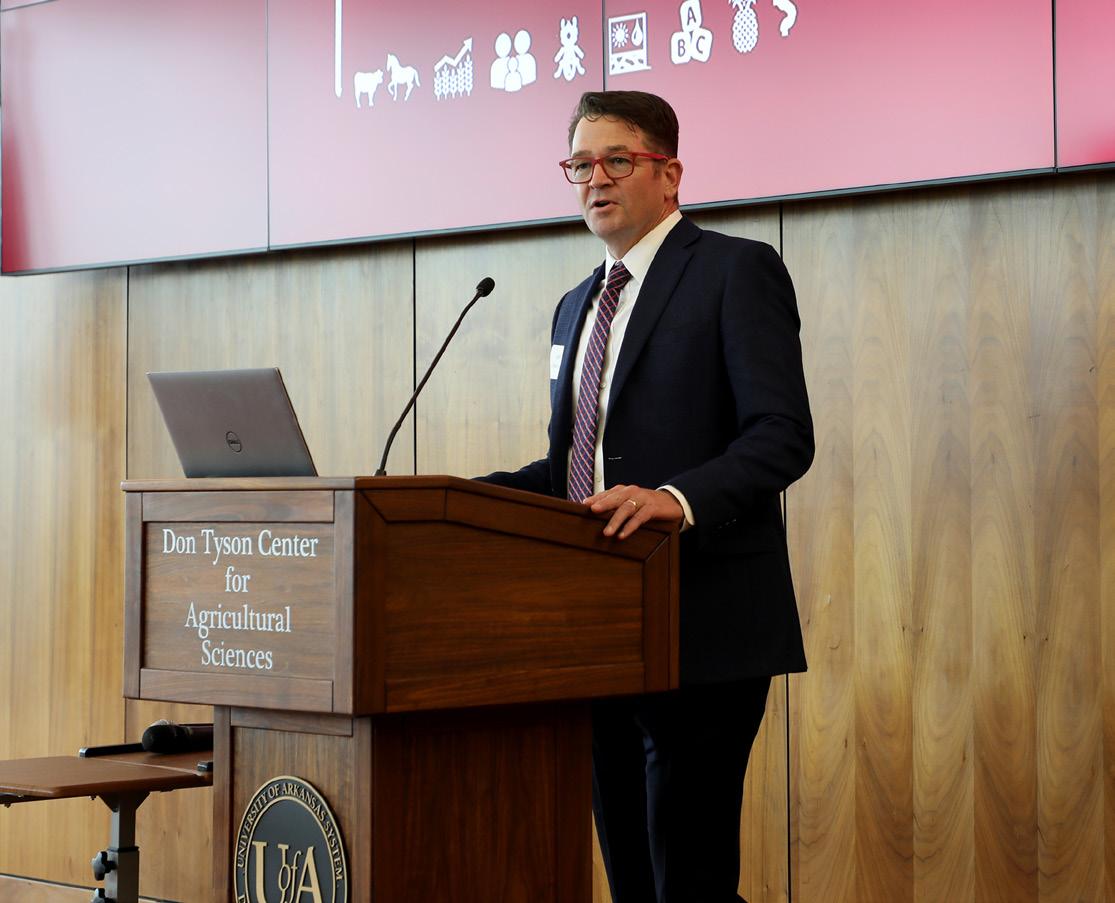
You’ve been dean since January, but at the U of A since 2022. What are a few key adjustments in moving from department head into the role of dean?
As department head, you are focused on a specific discipline and it is a bit easier to stay on top of current trends, etc. The teaching and research programs in Bumpers College are very diverse and range from birth through kindergarten and agricultural business to poultry science and human development and family sciences, so I need a much broader perspective. I’ve spent a lot of my time thus far learning about all the people and programs that make Bumpers College so special.
What is your message to junior high and high school students across the state?
First, be a Razorback! We have outstanding academic programs on The Hill, and the coolest mascot in all of college athletics. What’s not to love! Next, apply for scholarships. We awarded around $1.4 million in scholarships for the 2024-25 academic year, and most students who applied received a scholarship. The issue is that many students don’t apply because they don’t think their GPA is high enough or simply don’t want to take the time to complete the application. Most students qualify for one of our scholarships and the return on your time investment can literally be over $1,000 per hour.
Of course, consider a career in agricultural, food and life sciences. Whatever your interest, there is a way to use your talents to help solve real-world problems with a major in AFLS. Interested in math or computer science, great! Use that interest to help develop the next generation of precision agriculture tools and technologies. Or work alongside one of our world-renowned geneticists or crop breeders to identify genes to increase sustainability in agricultural systems. Enjoy entertainment, events and people, then hospitality management could be for you. Interested in fruits or vegetables? Breed new varieties in horticulture or go into food science to create new products.
Many of our Bumpers College administrators, faculty and staff were first-generation college students, including me. I want first-generation students to know they belong at the U of A and they can succeed in Bumpers College. There might be things they don’t know about accessing resources or navigating systems, but our outstanding staff at the Waldrip Student Center can help them access the information and resources they need. You can do it!
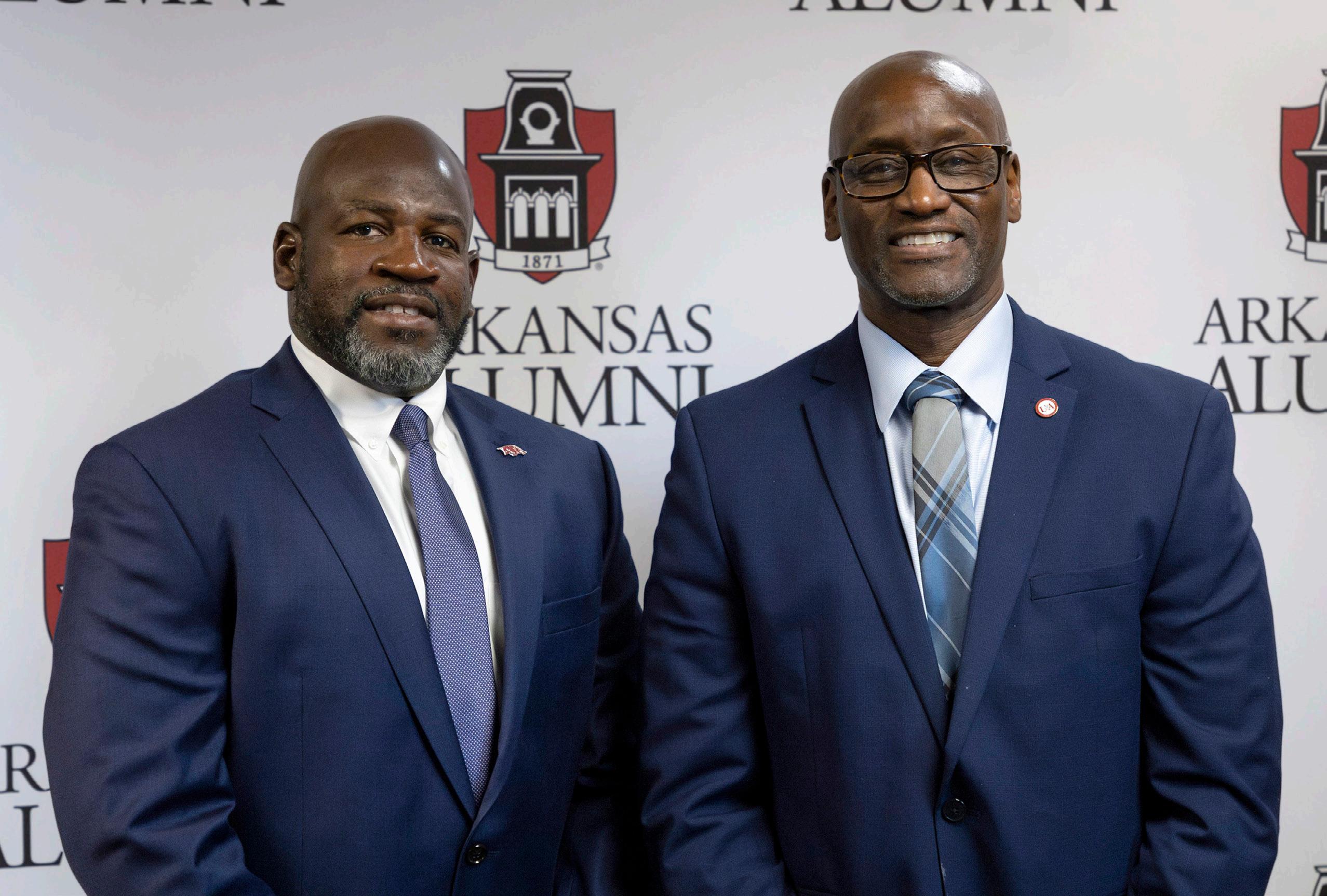
By Mary Hightower
In September of 2023, members of the Board of Trustees praised an agreement between the University of Arkansas and the University of Arkansas System Division of Agriculture as a milestone.
Since the Board of Trustees created the Division of Agriculture in 1959, there have been long-standing differences between the Fayetteville campus and the division. For example, faculty with appointments in both institutions had to navigate different processes for tenure, as well as finances and facilities.
The agreement maps out processes and defines roles and responsibilities related to finance and human resources operations, services, benefits, facilities and space allocation, and management of joint faculty and staff appointments.
The University of Arkansas was established at Fayetteville as a land-grant university, initially hosting all three land-grant missions: agricultural teaching, research and extension, or outreach. In 1959, the Division of Agriculture held the research and extension functions
through the Arkansas Agricultural Experiment Station and the Cooperative Extension Service. The teaching part was left with UAF, in what is now the Dale Bumpers College of Agricultural, Food and Life Sciences.
At their meeting last September at the Fayetteville campus, the trustees heard from Deacue Fields head of the Division of Agriculture; Charles Robinson, chancellor of the University of Arkansas; and JeanFrançois Meullenet, former interim dean of Bumpers College and head of the Arkansas Agricultural Experiment Station for the division.
When it came to the effort to reach an agreement Fields offered a line from the “Smokey and the Bandit” theme song, saying they were going to “do what can’t be done.”
“We wanted to make sure this was shaping the trajectory of this relationship in perpetuity,” Fields said after the meeting. “We want this to follow behind us and set the tone for the new relationship we expect to happen from now on.”
“We’ve torn down this wall,” Robinson said. “Now we’re building a culture together because we believe in the same things, and chief of them is helping Arkansas be the best state it could be.”
Meullenet, former interim dean of Bumpers College and head of the Agricultural Experiment Station, is among those with a foot in each institution and expressed that faculty were fully invested in both.
“I think that with this agreement, we are showing that we work seamlessly toward maximizing our impact on the state and on our mission,” Meullenet said. “I want to convey — from a faculty standing — the faculty in Bumpers College, whether they are majority division or the University of Arkansas, are really fully integrated on this campus. They are as much a part of this campus as any other faculty.”
Trustee Jeremy Wilson, who is a member of the Board of Trustees’ agricultural subcommittee, offered his congratulations.
“Thank you for all the hard work it took to accomplish this,” he said. “It’s a major milestone and I knew this was going to be a great presentation as soon as you said, ‘Smokey and the Bandit.”
Robinson and Fields exchanged Razorback and Division of Agriculture logo pins to mark the occasion.
Continues on page 28 >
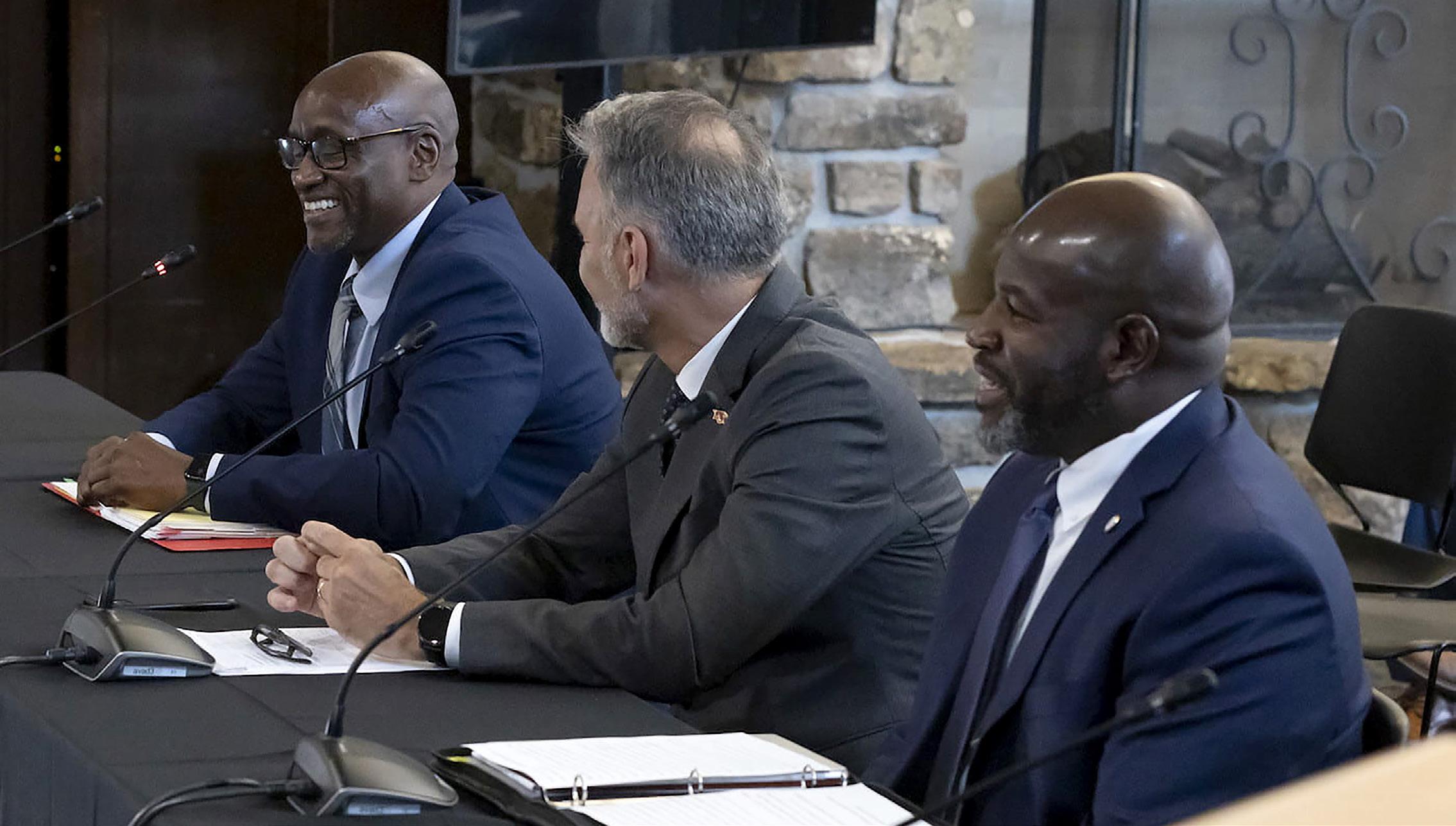
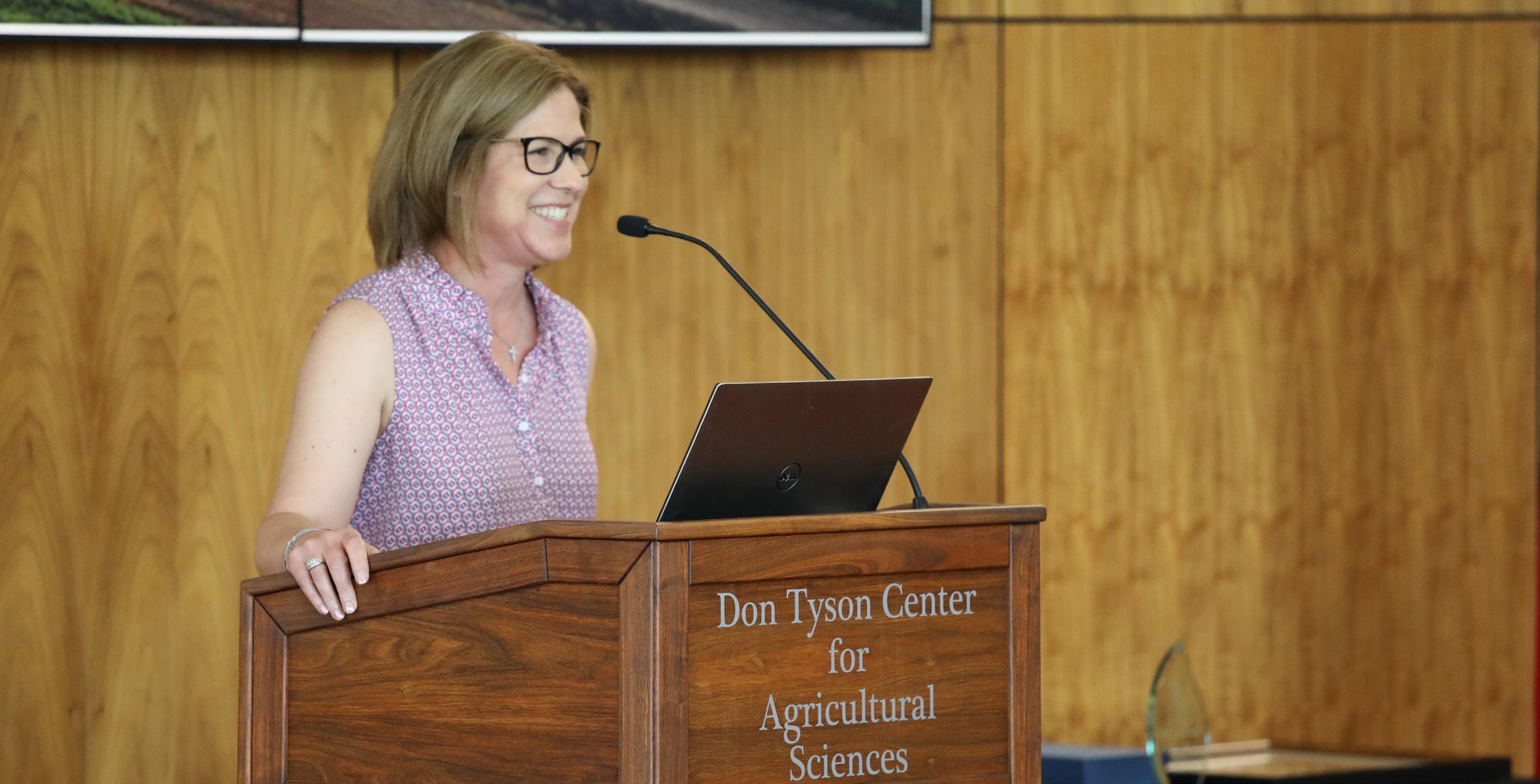
by Robby Edwards
Newport, Arkansas
B.S. in agricultural business, 1994
Fourth-generation rice, soybean and corn farmer; part owner of H&J Land Co., a diversified operation of row crops, grain warehouse and cleaning facility, as well as an automated container loading facility exporting specialty soybeans; runs the business with husband Greg and her father Marvin; in 2017, James was recognized by Field to Market: The Alliance for Sustainable Agriculture as the Farmer of the Year for the conservation efforts on her farm and her leadership in sustainability; at the 2019 USA Rice Outlook Conference, recognized as Rice Farmer of the Year and elected as the first woman to the Riceland Foods, Inc., Board of Directors
How does it feel to be named outstanding alumna?
Overwhelming! Bumpers College is important to me, so to be recognized as the outstanding alumna is a full circle moment in my life.
What prompted you to seek a degree in agricultural business?
When I arrived in Fayetteville, I was enrolled in the business college seeking an accounting degree, and planned to take electives in the ag college. When I missed the flat fields of northeast Arkansas, I knew I wanted to focus more on the business of agriculture and come home to farm.
What is something you learned in college that has been really beneficial in running your farm?
The network of friendships that began in college has benefited me later in life. I think we learn so much from each other and I have relied on those relationships when I needed help or guidance from my peers.
You are part owner of H&J Land Co. What does your business do?
H&J Land Co. is our farming operation. We produce corn, soybeans and rice on 6,200 acres in southern Jackson and northern
Woodruff counties. However, we focus on value added commodities as much as possible. Non-GMA corn and non-GMO soybeans for specialty markets, and also aromatic rice. We provide the attention to detail, data tracking and identity preservation of the crops to ensure the high quality our customers require.
In addition to H&J Land Co., we operate Auvergne Gain Co./Delta Soy, LLC, which is a grain warehouse and specialty soybean business. We use our Delta Soy varieties of natto soybeans to coordinate with local farmers to grow a high quality natto to the Japanese market. With our partners at Japan America Soybeans, we clean and ship the soybeans to Japan.
Needless to say, there is not much downtime around our operation.
What was it like growing up in Newport?
I loved growing up in Newport! My graduating class was full of so many strong, striving students. There was a tremendous amount of peer pressure to succeed academically. We also had a lot of fun together as well. My closest friends today are those friends I went to pre-school with, elementary school and through high school. The teachers I had are also good friends as adults and I am forever thankful for their guidance and mentorship through my high school days. I was very prepared academically when I arrived at the U of A that I definitely attribute much of my collegiate academic success to the faculty and staff at Newport High School.
Did you have any favorite professors or classes?
In the early 90s, many of the classes for ag business were taken in the business college, so I appreciated the AGEC classes and those professors very much. I had many favorites, but I think the top of the list would be Dr. Eric Wailes. He was tough, but I learned so much from him about ag policy. I had an interest in policy before college, but he certainly inspired my life-long love of advocating in Washington D.C. and Little Rock for agriculture and especially for farmers. I have had the opportunity to testify on behalf of the U.S. rice industry in front of the U.S. Senate and House Ag committees.
What did you do for fun on campus and in Fayetteville?
I was a member of Pi Beta Phi Sorority and served as president in 1993. I always lived in the house, which kept me surrounded by awesome people and always things to do! There was a group of us that would do our homework and study, but planned a study break to Casa Taco. This tiny restaurant was not far from the house and had a cheese dip and salsa special with a soda for $1.25 at 10:30 pm. On my last trip to Fayetteville, I noticed the tiny building is still there and it is still a Mexican restaurant. I bet you can’t get that price any longer.
When and where did you and your husband Greg meet?
Greg and I both grew up in Newport and went to high school together. He was a couple of years ahead of me and we were friends, but never dated in high school. After he graduated from college, we were home for Christmas break and he asked me out for dinner and a movie. We spent just about every day together during that break and by the time my classes started back in January, I knew he was the one. We married the spring after I graduated and celebrated our 30th wedding anniversary in March.
What do you and your family do for fun?
We love the outdoors. I love to fish, and Greg and Dylan love to duck and deer hunt.
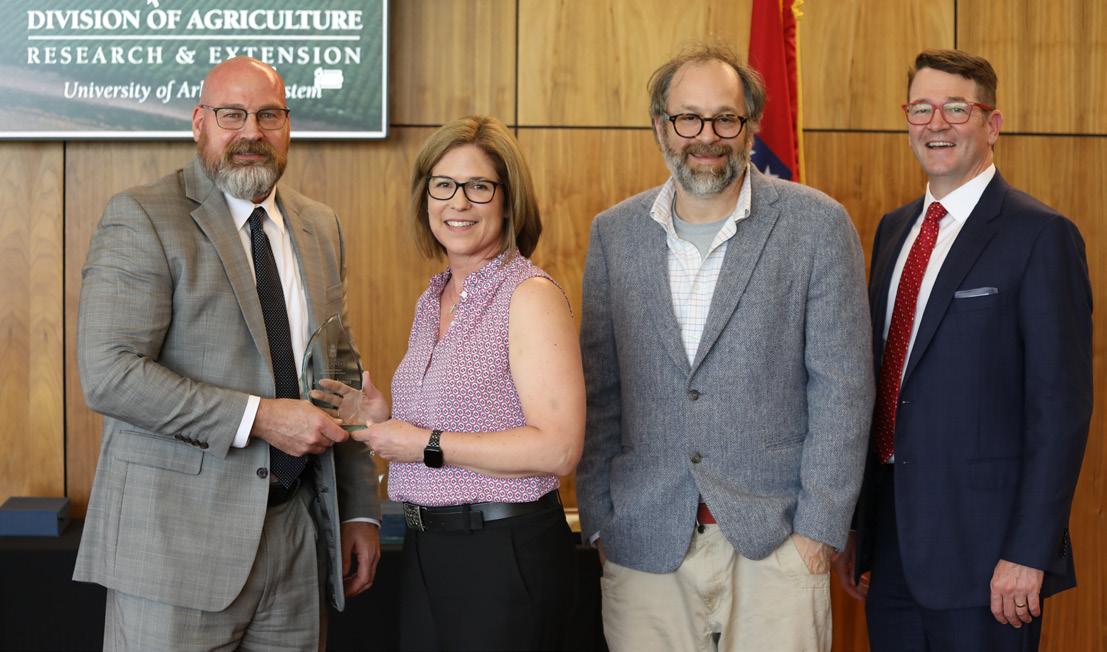
Jennifer and Greg learned conservation and good stewardship practices from her father Marvin. She says it’s important for consumers to understand what farmers do sustainably because many groups advocating for those practices have never been to a farm, and that farmers should be involved in establishing those practices and policies.
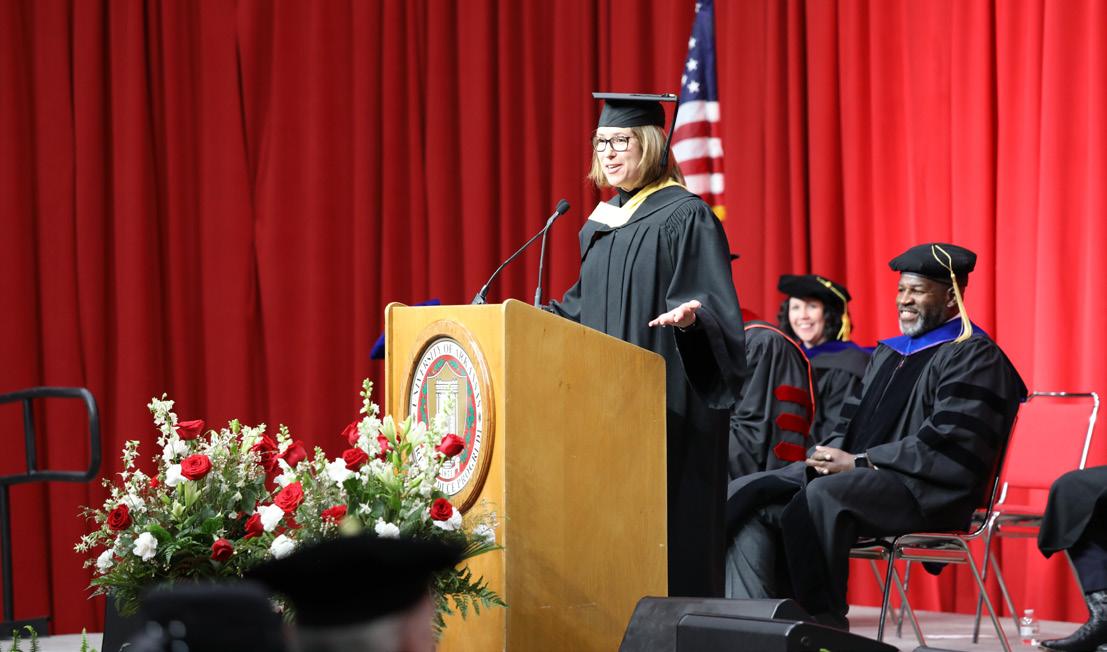
Any advice for young college graduates?
Be persistent in the pursuit of your dreams and goals. Do not sacrifice friends or relationships in life. Be patient and give yourself and others plenty of grace.
You were the first woman on the Riceland Foods Board of Directors. What was that experience like?
I was asked by local farmers to run for one of our district seats because I was well qualified to fill the role. I was very surprised and excited when I won! Being on the Board of Directors has been challenging because Riceland is a $1 billion company with a wide diversification of products. As a farmer member, I never realized all the work to be done after harvest in the drying, storage, marketing and logistics of taking care of the crop each season. It is a lot harder than it looks.
What is your favorite way to eat rice?
I love Arkansas grown Jasmine white rice with a little soy sauce and Japanese furikake seasoning as a side for almost any meal.
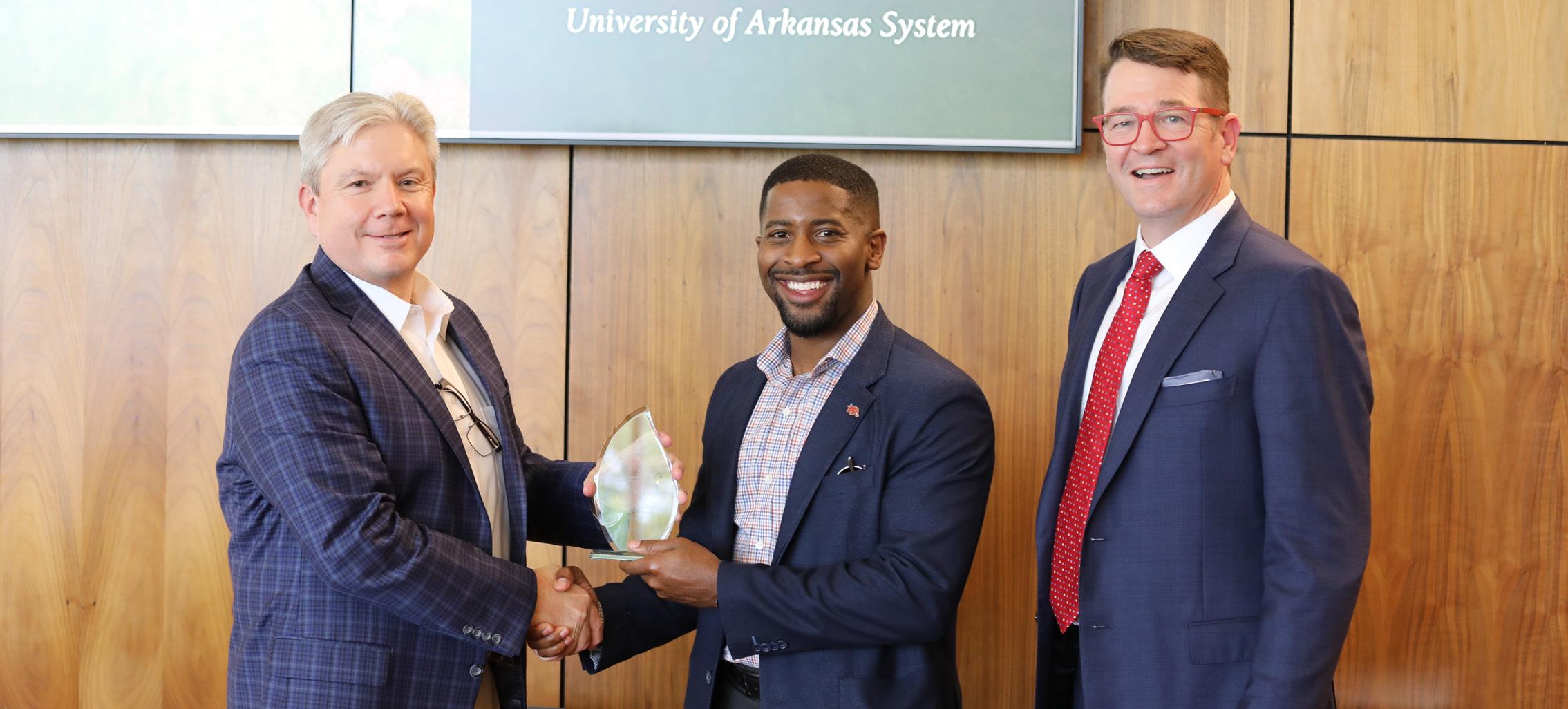
by Robby Edwards
Boston, Massachusetts
B.S. in animal science, 2015
Service line administrator of the Digestive Health, Neurosciences and Spine Service Line at Brigham and Women’s Hospital, a founding member of Mass General Brigham and teaching hospital of Harvard Medical School; he provides administrative, operational and strategic vision for the multidisciplinary clinical programs within his portfolio; served as a summer resident at Baptist Memorial Health System in Memphis, 2017; an administrative graduate assistant with Baptist Health in Little Rock, 2017-18; selected an Administrative Fellow with John Hopkins Medicine in Baltimore
How does it feel to be named the college’s outstanding young alumnus?
Grateful! I have been overwhelmed with gratitude since receiving the award communication from the college. Nine years post-college and I feel like I was just a student two years ago! Returning to campus in May for the commencement festivities provided an array of reconnections with peers, professors and staff who had an impact on my experience as a student. Lastly, the opportunity to celebrate this noteworthy weekend alongside my family is something I will cherish for a lifetime.
You’re from Louisiana. How did you end up at Arkansas majoring in animal science?
My parents encouraged my siblings and I to pursue the career of our dreams while being fiscally conscious of each option. We grew up on an Angus/Beefmaster cattle ranch, and I had always contemplated the opportunity to become a large animal veterinarian or medical physician. The animal science pre-vet courses enabled the opportunity for me to pivot between either program without full duplication of pre-requisites. Of course, taking swine production with Dr. (Bryan) Kutz would not equate to physics, but one can understand the intent. Lastly, I acquired various animal science and agriculture related scholarships from my involvement in 4-H, National Junior Angus Association, Farm Bureau and other organizations, which also impacted my decision.
How did a degree in animal science lead to your position with Brigham and Women’s Hospital?
Interestingly enough, the animal science courses helped me assimilate the intricacies of human medicine. In the ANSC program, we were exposed to direct animal care environments from calving to reproduction to genetics, which provided me with a foundational understanding of the medical treatment of animals wholistically.
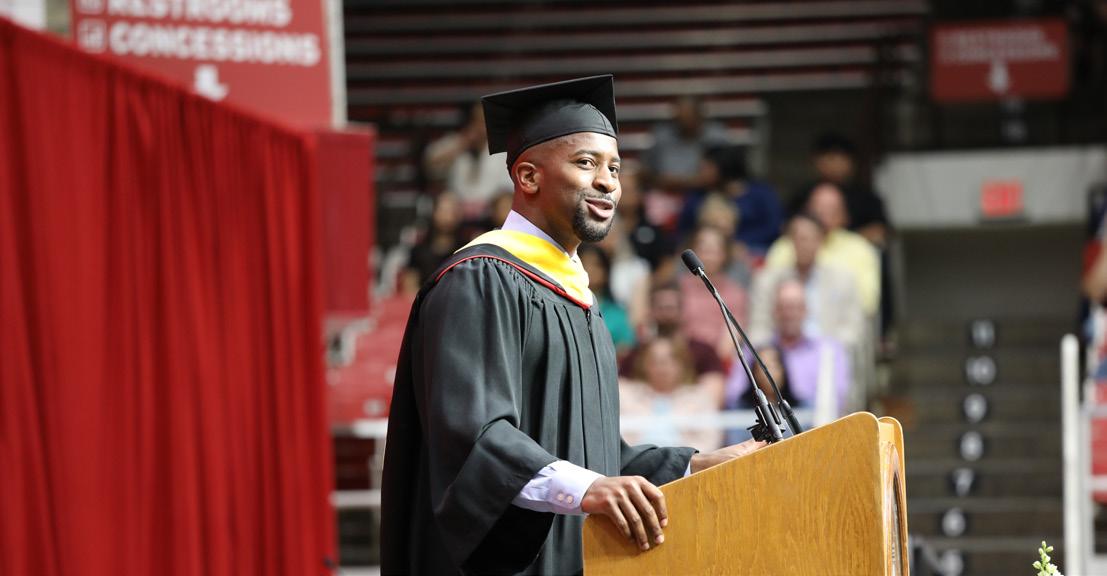
As a student, McFarland would play violin and piano, and sing for residents once a month at Butterfield Trail Village Retirement Home as an outlet to get away from college and serve a community sometimes forgotten. He says it also allowed him to retain the muscle memory of playing a few difficult pieces he learned in high school.
Most of the concepts learned can be transferable within human medicine. For example, one of the clinical teams I work with has a large animal laboratory, and they perform approved new and innovative techniques/procedures on pig subjects due to pig anatomy similarities. Additionally, many of the heart valves used in cardiac surgery are porcine and bovine valves, as they do not require blood thinners compared to human or mechanical valves. I have had many conversations with my clinical colleagues about my experience observed both on the farm and as an animal science graduate, which brings a more personable dialogue when discussing clinical matters.
What do you enjoy most about your job and career?
Healthcare administration is an area of the hospital many individuals overlook as most of the clinical roles (doctors, nurses, advanced practice providers, etc.) are the most visible team members, and rightfully so. As a result, many clinical team members have a negative pre-conceived notion toward administrators, assuming we are all number crunchers, just care about the bottom-line and fully removed from the patient care setting.
One of the most fulfilling components of my job is to debunk those assumptions. I still have the clinical interest in how patient care is rendered, strive to work alongside the clinical team to identify workflows to better improve both their and the patient’s experience, and identify sustainable term funding systems to see such change to fruition. I love scenarios where my clinical and administrative team members present a problem that requires a multidisciplinary approach to fix it. Team members from across the care continuum gather to resolve the issue. It may not become resolved immediately, but if a burning issue is presented, I will continue pushing until it is resolved. I see my job as a change influencer, enabler of teams to operate at their highest scope, and ultimately, an indirect driver of how we render care to patients.
Do you have any favorite memories of your time at the U of A and in Fayetteville?
Two of my favorite memories are serving as homecoming director on the Arkansas Alumni Board and serving as the Student Body President. Both campus-wide service roles allowed me to view the vast representation of students present on the Fayetteville campus. The homecoming director role provided a glimpse into how to bring current students, alumni and greater community together to celebrate
one of the largest U of A events/weekends, and the student body president role enabled me to represent students who may not have had a voice in various university initiatives, representation in local and state-wide events, etc. Being a Louisiana native who knew fewer than five people upon my arrival in 2011, and leaving with memories/ experiences like these has shaped me as a leader and made me a better advocate for people.
If you were doing something in the agricultural industry, what would it be and why?
Louisiana Commissioner Mike Strain and I have known each other for over 15 years, and he would always tell me I’d have his job someday. Due to my recent career choices, I would say that is a dream deferred. Nevertheless, I hoped to serve in an agriculture advocacy or regulation role if I would have remained in the industry.
What is something you learned here that helps you in your current position?
The ability to be flexible to any environment while continuing to present my authentic self. There were many times where I would start my day in college learning about animal reproductive physiology talking about momma cows, present at a university leadership meeting as the student body president advocating for students, speak at a community service event, attend an animal science REPS event and end the day with coursework or connecting with friends. Throughout all those spaces, I was able to learn more about who I am and what I represent in each room. Similarly, I meet with front line staff, physicians, executives and nurses. One thing I hope to present among these settings is an uncompromised version of myself.
What is your favorite Cajun-inspired dish?
Gumbo – I am now the primary gumbo chef for our thanksgiving gumbo, a true family badge of honor.
Any advice for recent college graduates?
Everyone’s journey is different, and the timing of when success/ failure occurs is set by the Lord above. I encourage graduates to enjoy the highs and lows of their journey with people who hold them accountable and challenged.
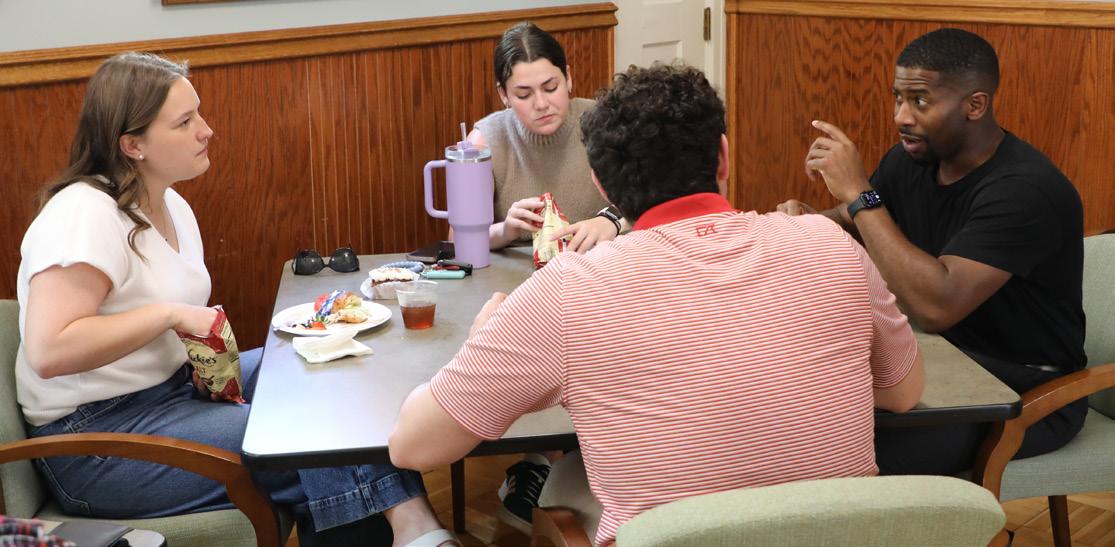
McFarland says his dad, a family physician and farmer, inspired his interest in both human and animal medicine. “His ability to see patients through the week while leading our family farm before/ after patient care responsibilities is my constant inspiration. I always wanted to pursue a similar path to both provide for my future family and have an impact on communities. Hospital administrators have the ability to impact employees, patients and communities. In my opinion, it does not get much better.”
By Robby Edwards
Gifts are used to assist students, faculty, staff and programs. There are multiple opportunities for support. Get to know some of our donors:
A former Cooperative County Extension agent turned healthcare development director, the combination of the two helped Larry Sandage find the perfect way for he and wife Brenda to leave a gift to Bumpers College and the U of A, and help others at the same time.
Sandage, who is from Donaldson, Arkansas, earned bachelor’s and master’s degrees in agronomy, in 1971 and 1974, respectively, and worked 20 years as a county extension agent and eight more as a U of A state extension forage/pasture specialist.
It was a natural path for Sandage, who grew up on a small farm and was always interested in agriculture. His extension career included stints in White County, Woodruff County, Independence County, the Little Rock State Extension Service Office and the eight years as the forage/pasture specialist.
He retired from the U of A System in 2001 and became executive vice president and CEO of the Batesville Area Chamber of Commerce. Brenda, who had retired from Arkansas Eastman Kodak as business coordinator/senior administrative assistant, was the chamber’s program/membership director. After two years, Larry went to White River Health System in Batesville and served eight years as director of development. Brenda was on the staff, too, working as the hospital’s physician liaison.
“Working in hospital development gave me a great understanding and appreciation for legacy giving,” Larry, who is officially retired now, says. “One of my jobs was fundraising for hospital expansion and legacy giving where we were able to average raising slightly more than $1.75 million a year each year.”
Larry and Brenda have created an endowed scholarship with a planned giving gift of $150,000 for undergraduate students in crop, soil and environmental sciences.
“Family farms are struggling,” Larry says of a reason for the gift. “My fear is farming as I grew up knowing it will essentially be a thing of the past. Corporate farms controlling everything may be the future.”
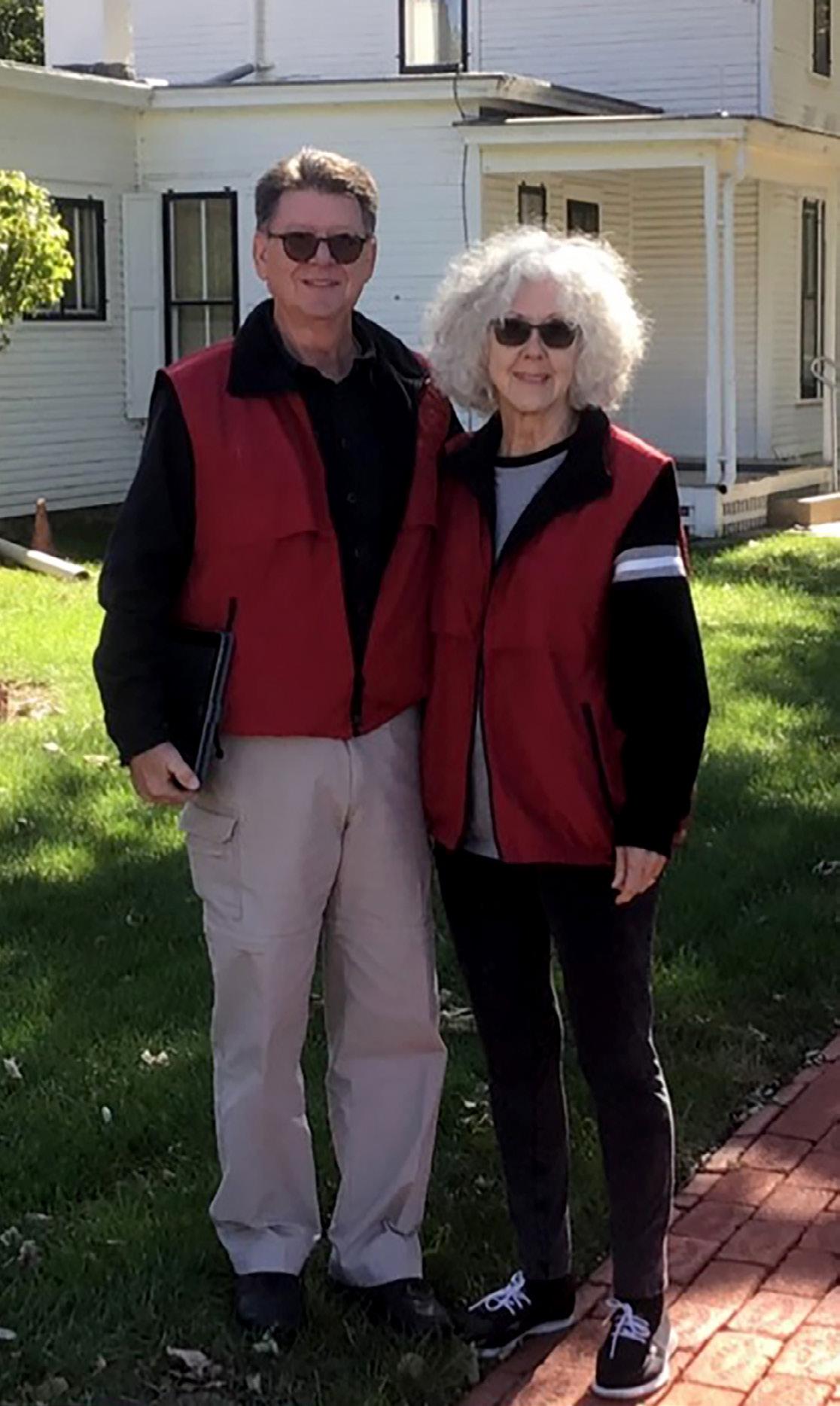
D&F Equipment Sales, Inc., with locations in Arkansas and Alabama, serves the poultry, meat and prepared foods industries with conveyors and other food processing equipment.
With a desire to give back to those industries and communities where they operate, D&F leadership created D&F Charity Trust to focus on supporting agriculture in both states. As a result, the D&F Equipment Sales, Inc. Endowed Award and the new Logan F. Knox Endowed Award scholarships have been established for students in Bumpers College.
The D&F Equipment Sales scholarship was created in 2018 and the Logan F. Knox scholarship was established this year.
“D&F is a huge supporter of Bumpers College,” Dan Miller, Bumpers College director of development and external relations, says. “Their community-centered support and dedication to education is so important to the work we do here to prepare students. We are grateful for their commitment to the University of Arkansas and hold them in high esteem as genuine Razorbacks.”
The scholarships are intended for students majoring in poultry science, agricultural economics and agribusiness, or agricultural education, communications and technology with a concentration in agricultural systems technology management.
The company desires to support its various communities as well as prepare the future leaders in its industries.
D&F is led by the management team of CEO and President Dawn Knox, VP of Operations and Administration Adam Walker, VP of Sales and Engineering Joey Knott, and National Operations Manager Logan Knox.



…Larry and Brenda? Consider a planned gift. Planned gifts can be gifts from a will, trust, IRA, life insurance, stocks, property, etc. We can answer any questions you have and tailor a planned gift to meet your needs. You can designate a percentage or amount and determine its use.

…D&F Equipment Sales? Create an endowment, it’s the gift that keeps on giving, paying out 4 percent annually in perpetuity ($25,000 minimum). Donor designates use, names the endowment, and if for scholarships, determines the awarding criteria.
Some of our endowments were created more than 60 years ago. Contact our Development Office at 479-575-2534 or extrel@uark.edu
While taking fire in a bunker in Afghanistan, Dietrich Thurston thought “…if I get out of this, I’m going to do the best job I can in the military, and if I get the chance to go back to school, I’m going to take it.”
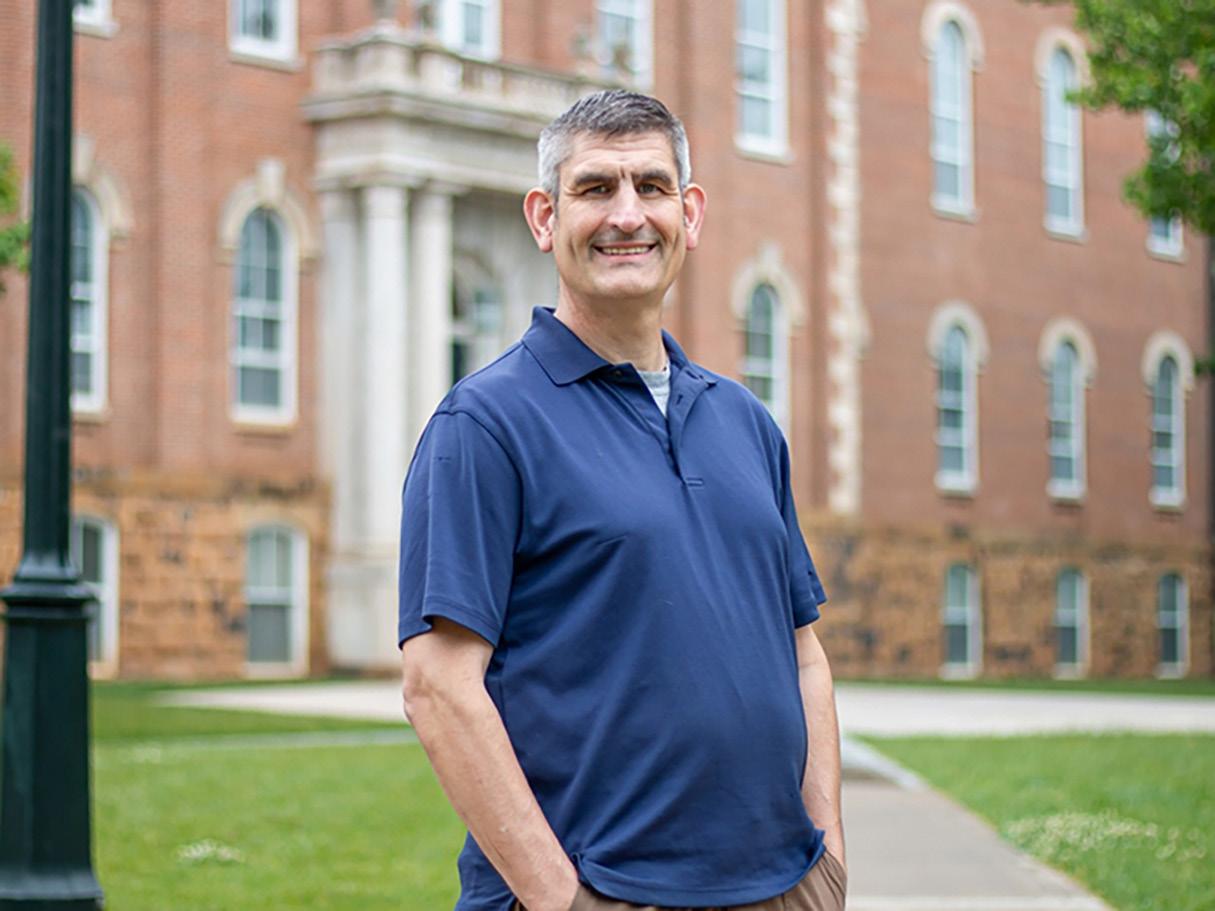
by John Post
Crouching in a bunker in Afghanistan with mortar fire from the Taliban roaring overhead, Dietrich Thurston thought about his accomplishments in life up to that point and the opportunities missed along the way – most notably an abandoned pursuit of a higher education degree after he was academically dismissed from the U of A nearly two decades before for poor grades.
“In the bunker, I thought to myself, ‘What the heck am I doing?’” he said. “I realized in that moment that life is not a permanent thing. When it’s over, I want to look back and think that I accomplished all the goals I wanted to accomplish and realize my dreams.
“It was at that point I said if I get out of this, I’m going to do the best job I can in the military, and if I get the chance to go back to school, I’m going to take it,” he added.
Thurston did get that opportunity after earning a military retirement. Not only did he return to school and earn a bachelor’s degree in agriculture from the U of A, he went on to pursue a master’s
degree in crop, soil and environmental sciences, a degree he completed last summer.
His return to school continued a passion for education instilled as a child by his father, a professor at Clemson University. His father, who “came from nothing,” worked for a railroad in the “map-dot” railroad town of Kismet, Kansas, before committing to a belief that education could transform his life. He earned bachelor and master’s degrees from the U of A, and a Ph.D. from Missouri, advanced degrees that propelled him into a career in academia.
“When you’re raised in a family with a professor parent, you grow up understanding the value of education,” he said. “It was just a part of my life. We had National Geographic in my house to read. We would take trips, and Dad would always tell me about the science behind things. When I was in the military, it was like, ‘What am I doing here?’ Science and learning were so much of my life, and I had gotten away from it.”
Returning to school, Thurston had learned from his mistakes during his first foray at the university – a lack of a strong support network and awareness of academic resources on campus such as tutoring and office hours, as well as a fear of approaching professors for help.
This time, Thurston tapped into the many resources available to him – and made it a point to get to know his professors who helped him along his academic journey.
“This time around, the classes where I struggled the most were where I made the best connections with the teachers and staff,” he said. “One class that particularly bogged me down early on was Fundamentals of Agricultural Systems Technology. The class is mathheavy, and I was severely out of practice. I remember explaining to the professor, Dr. Don Johnson, that I did not think I could keep up. He recommended that I come to two labs per week instead of one - and I did. He recommended that I visit him during office hours – and I did.
“I learned through our interaction that most professors are willing to provide additional help to students who demonstrate a genuine desire to learn,” he said. “This became the secret of my success at the U of A.”
But his studies weren’t without challenges. When Thurston struggled in a class, he would walk down the sidewalk behind the Agriculture Building until he found his dad’s name on Senior Walk to remind himself of why he was here.
“I would think of the struggles he endured,” Thurston said. “He grew up as a kid in rural Kansas with very little money, and his dad
passed away when he was in college. He endured these things and yet struggled through them. It simply helped me to get through some of my challenges – and it still does.”
In two years, Thurston had earned his bachelor’s degree and landed a job as a turf equipment mechanic for Razorbacks Athletics. During his time working for the Razorbacks, he realized he needed more education to be able to find employment in academia studying soil science. Motivated by his Dad having his name on Senior Walk twice, Thurston returned to school for his master’s degree.
When returning as an undergraduate, Thurston made all A's except for one B in soil science. Since he “learned the most in this class because it was challenging,” Thurston decided to continue his master’s degree in the same field.
Thurston is looking to work in a scientific research field focused on natural resource conservation or environmental restoration. While he isn’t ruling out the idea of getting a doctorate, he said he is taking it “one step at a time.”
“I am keeping it simple. One step at a time while learning something new every day and having as much fun as I can along the way,” he said. “I can sense that my efforts will pay off with a tremendous sense of accomplishment, simply because of the challenge level. It will feel like I achieved beyond my capabilities. None of it would be possible without the great support from my family –Nichole, Emi and Ryan – and mentors Dr. Kristofor Brye, Dr. Don Johnson and Dr. David Miller.”
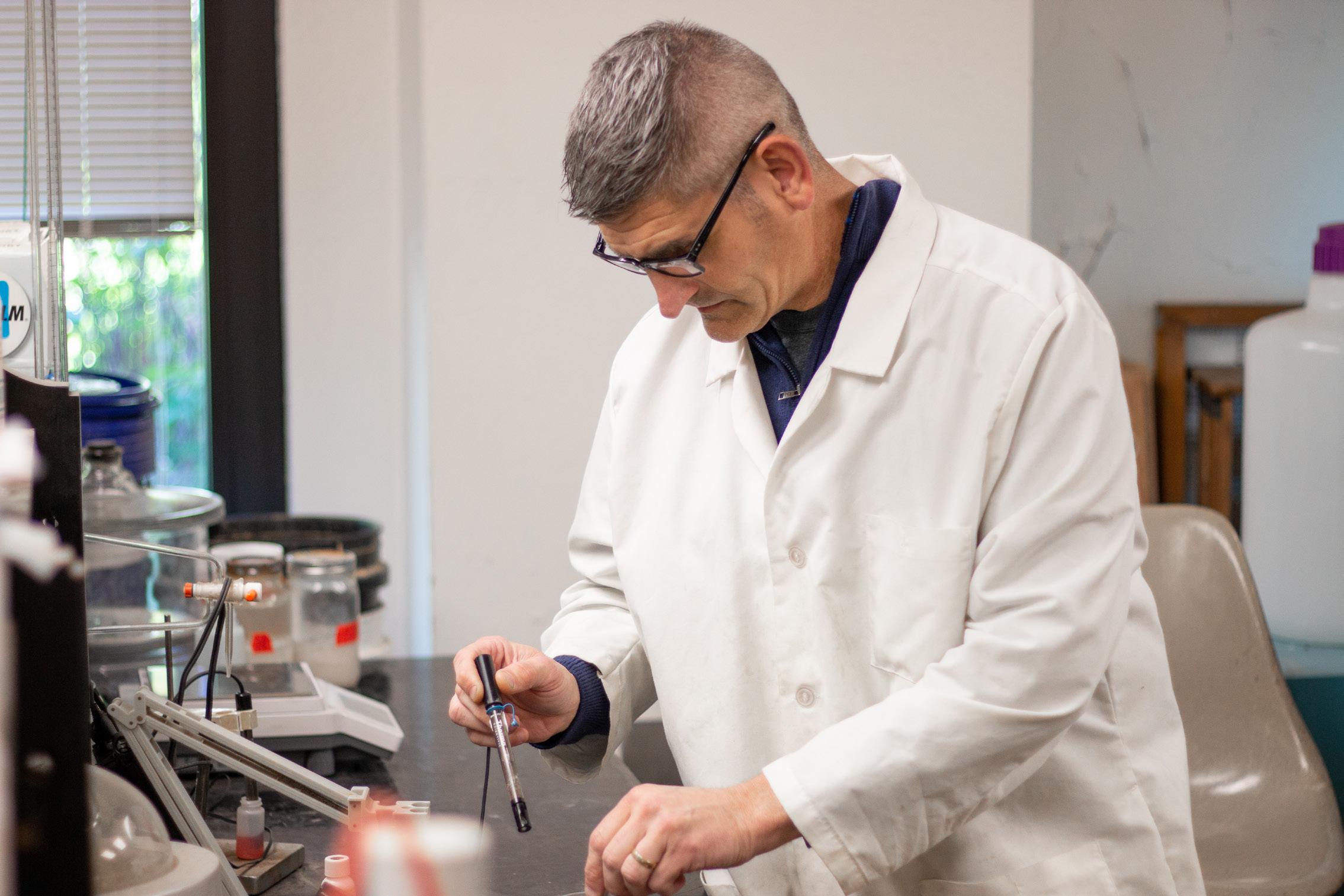
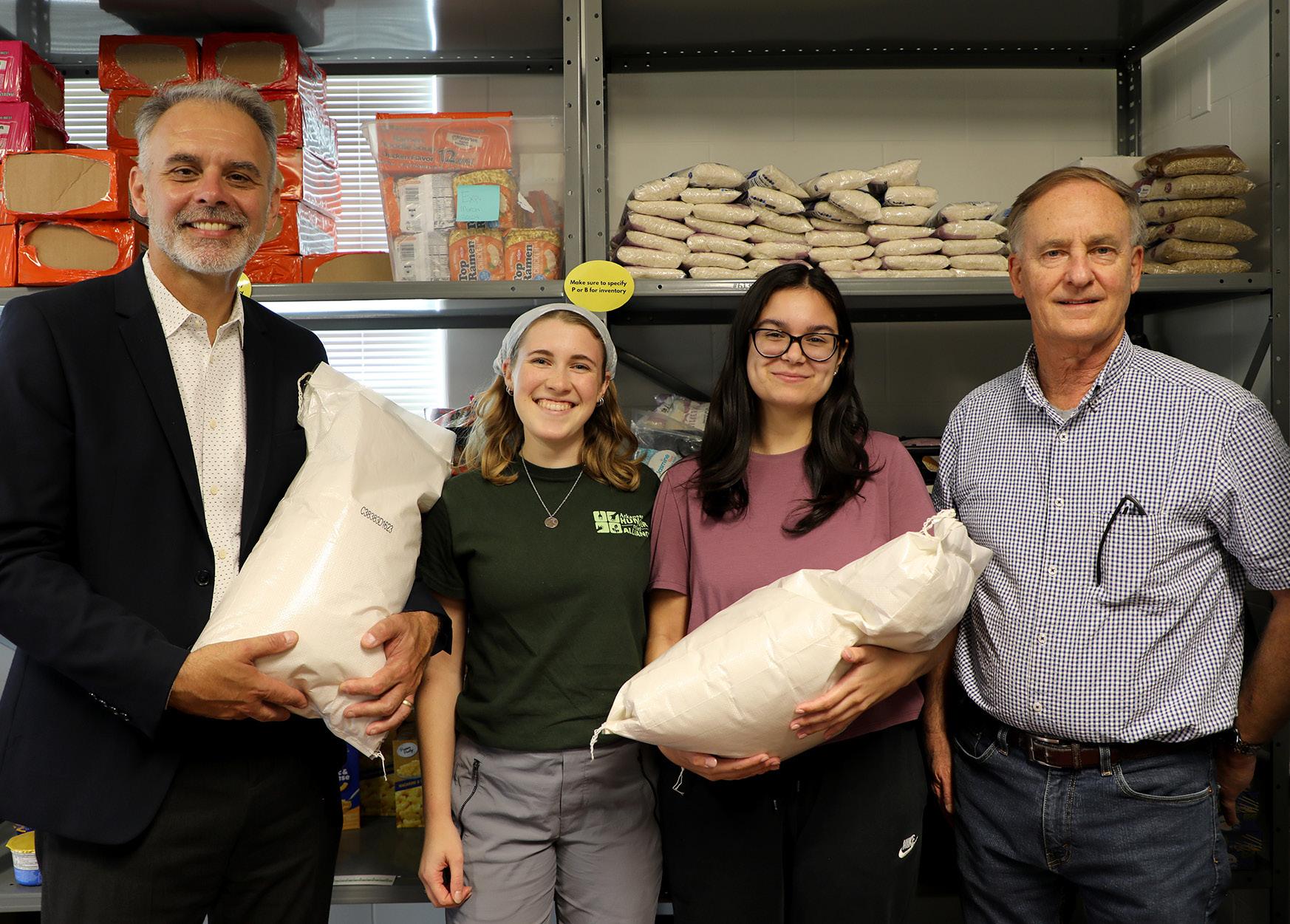
by Karli Yarber
Last fall, three Arkansas-based rice companies helped address food insecurity on campus by donating more than 1,200 pounds of rice to the University of Arkansas’s Jane B. Gearhart Full Circle Food Pantry. Cormier Rice Milling Co., Riceland and Producers Rice Mill donated to the food pantry and pledged to donate even more. Cormier recently sent 625 pounds to Fayetteville while Riceland and Producers sent 200 pounds each, with more to follow.
Caroline Wilson, the chair for Full Circle Food Pantry, emphasized the needs of the pantry, specifically with rice. She noted how demand for rice means it goes quickly at the pantry.
“Rice is a staple crop and food that so many people use every single day,” Wilson said. “We have a lot of international students on campus
who are clients at our pantry because, for international students, we are the only food resource that they are allowed to use. Most food assistance programs are limited to U.S. citizens only. For our international clients, this is literally their only option.”
Wilson also explained that international students at the U of A on a VISA struggle even more because they legally cannot work more than 20 hours weekly. This creates strain on their finances and the ability to afford groceries and other essentials.
“It’s really important for us to provide foods that are used daily in peoples’ diets,” she said. “The rice on our shelves right now may look like a lot, but that will not even last us through the semester. We just go through it so quickly because it’s something that so many people love.”
Katelyn Helberg, the alternative assistance coordinator for the pantry, also stated the pantry is often in need of rice.
“Rice is something that a lot of our clients typically want,” Helberg said. “We’re currently serving around 1,100 clients a month. You can imagine how many people we’re trying to distribute to, and rice is something more expensive for us to buy and supply in the pantry.”
Back in the Fall 2022 semester, a group of students visited with the Dale Bumpers College of Agricultural, Food and Life Sciences Dean’s Partnership Council. The students shared information about food insecurity on campus with Jean-Francois Meullenet, interim dean of the college.
Meullenet, while serving as interim dean since July 2022, is also senior associate vice president for agriculture research with the UA System Division of Agriculture, and director of the Arkansas Agricultural Experiment Station. Meullenet recognized an opportunity to use his food industry connections to help.
“We are the Dale Bumpers College of Agricultural, Food and Life Sciences, and that food part is very important,” Meullenet said. “It was eye-opening to learn how many people in our community are in need of food. I have connections with industry, so contacting them was really just an easy first step in assisting the food pantry.”
Meullenet worked with Nathan McKinney, assistant director of the experiment station, to coordinate the rice donations.
Wilson said McKinney came to the pantry first with a generous donation. While there, he offered his business card and said if the pantry ever needed more rice, to contact him.
“So, we did,” Wilson said. “And we’ve continued that partnership, even when there were times when there wasn’t any rice available to
donate, he stayed connected and let us know as soon as there was availability. It’s been so impactful to have that reliable source of donations coming in.”
McKinney gives all credit to the producers in the state.
“Arkansas rice producers and rice millers have always been generous and gracious with their products, and they will continue to do so.” McKinney said. “They have pledged to give even more in the future.”
“They always give to efforts like this,” Meullenet said. “They will just bring entire pallets of bags of rice and I can tell they are excited to be aware of a need that serves a community well, like the Full Circle Food Pantry.”
Helberg is anticipating more rice soon.
“We’re expecting more than 600 pounds (following the first donation),” she said. “With all these 25-pound bags, we take those and portion them out based on our pantry’s portion guides. We try to portion it out so that we can distribute it more equally to many different households. We anticipate that, with this much rice, it will last us even into the spring semester.”
“We’re just so appreciative of this donation and all donations that come into the pantry,” Wilson said. “I’m really excited to continue any and all partnerships that come our way.”
According to the Division of Agriculture’s 2023 Arkansas Agriculture Profile, Arkansas was the No. 1 rice producer in the United States in 2022. Data from the U.S. Department of Agriculture shows that Arkansas accounted for nearly 50 percent of U.S. rice production last year.
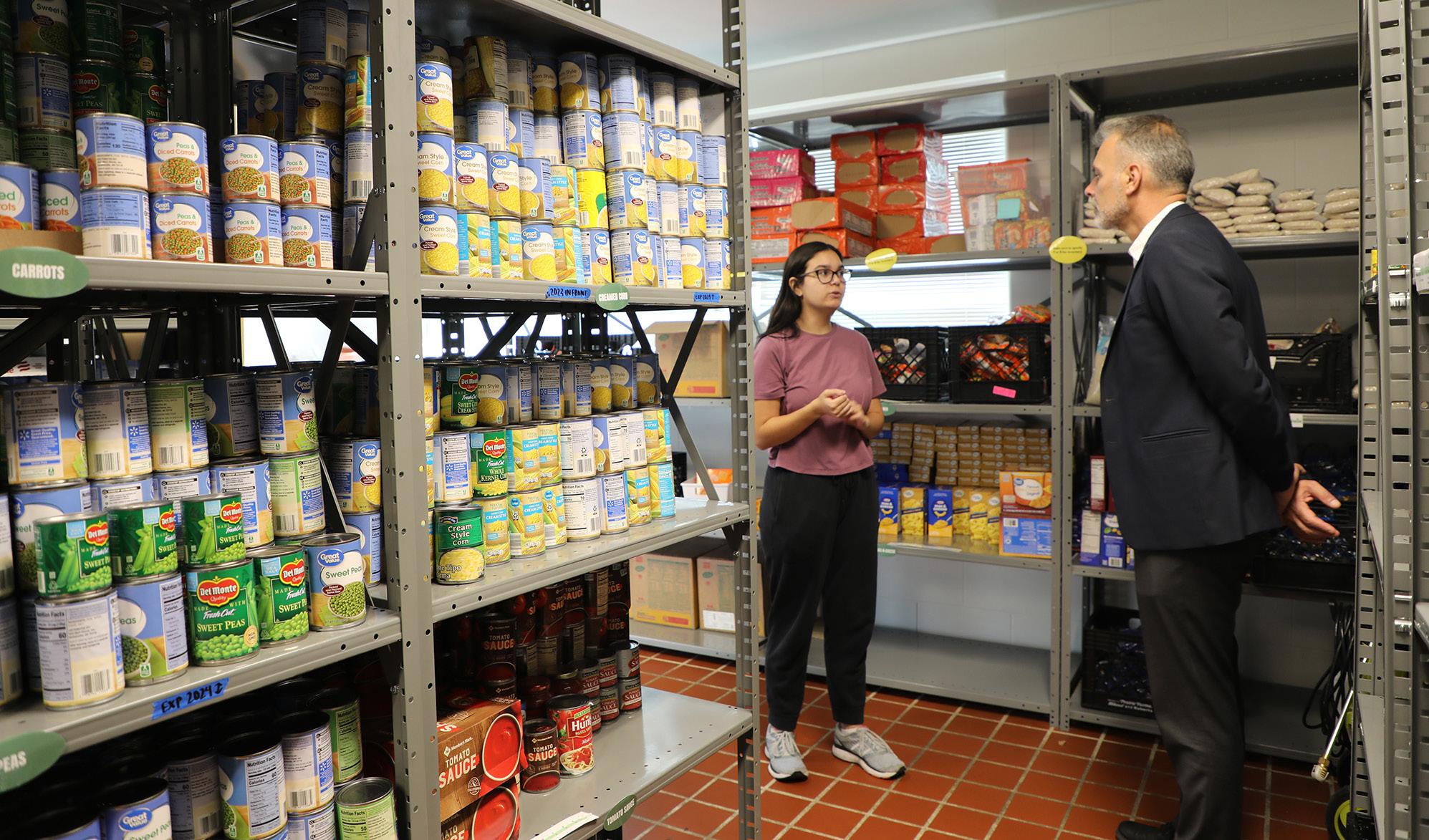
by Robby Edwards
Exhibiting the versatility, scope and reach of Bumpers College, the college's School of Human Environmental Sciences was named U of A's winner of the 2023 Daniel E. Ferritor Award for Departmental Excellence in Teaching.
The school is the first unit of Bumpers College to win the award, which was initiated in 2017.
The award recognizes a department or unit that best displays teaching excellence for each academic year. Winners are selected based on the department or unit's sustained commitment to teaching excellence, faculty development and student success, and how well it measures excellence in teaching and learning.
"This award attests to the faculty's commitment to teaching and learning excellence," said Donna L. Graham, director of the school. "Besides innovation in classroom instruction, faculty devote hours to various experiential activities to enhance students' problem-solving and creative thinking. Their passion and investment in students' growth and success are commendable."
The School of Human Environmental Sciences focuses on the basics of life — family, community, food, clothing and environment, with all related to the university's land-grant mission of teaching and education, research, and service and outreach.
Concentrations include apparel merchandising and product development; birth through kindergarten; food, nutrition and health; hospitality management; human development and family sciences; and human nutrition and dietetics.
"This is a tremendous honor for the School of Human Environmental Sciences, and congratulations to all the faculty and staff who worked to receive this well-deserved recognition," said JeanFrancois Meullenet, then-interim dean of Bumpers College. "At first glance, some may wonder how HESC fits in with Bumpers College, but all of those concentrations are connected to food, nutrition, health, fiber, education, service, research, well-being and meeting the needs of families and individuals. Bumpers College focuses on the landgrant mission, and HESC connects us in areas some of our traditional departments do not reach."
Students in the apparel merchandising and product development program prepare for careers in apparel merchandising, product development, brand management, retail buying and management. Birth through kindergarten majors develop skills to teach infants, toddlers, preschoolers and kindergartners with and without disabilities, and are accredited by the Arkansas Department of Education Teacher Licensure. Students in food, nutrition and health are prepared for careers in health-related industries or research. Hospitality students go into areas such as event planning, lodging, food and beverage management. Graduates of the human development and family sciences program have experience and skills to work with people of all ages in a variety of settings. Nutrition and dietetics
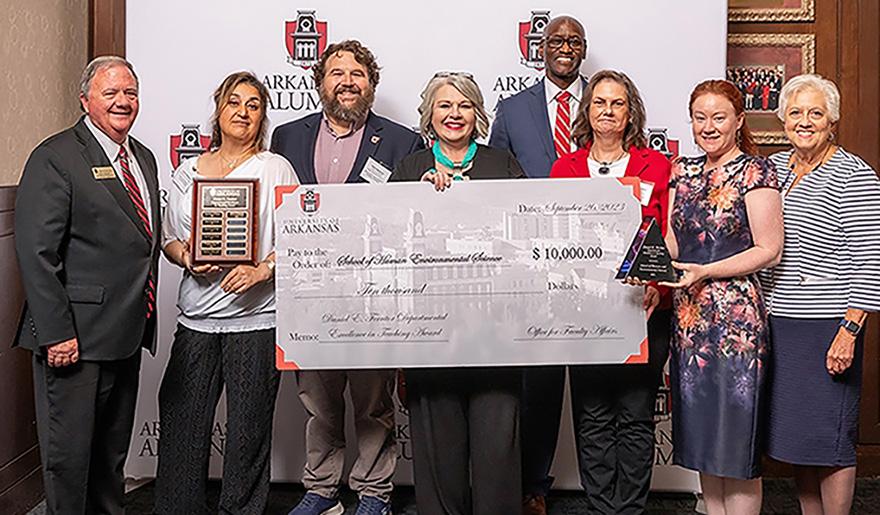
students are prepared to enter graduate school and supervised practice programs to continue the process of becoming registered dietitian nutritionists.
Among many efforts to be more student-focused, the School of Human Environmental Sciences:
• Organizes and participates in two retreats yearly to strengthen cultural competency and is the only unit on campus assessed and trained in intercultural competency three times among all faculty, staff and graduate students on the Intercultural Development Inventory;
• Faculty members include three Fellows of the Teaching Academy, a national USDA Teaching Award recipient, a Baum Teaching Award winner, Dr. John and Mrs. Lois Imhoff Award recipient for Outstanding Teaching and Student Mentorship, an Outstanding Mentor Award from U of A's Office of Nationally Competitive Awards and an Honors College Distinguished Faculty Award recipient;
• Monitors teaching effectiveness beyond standard student evaluations through peer observation of teaching, assessment by alumni, advisory boards and student feedback regarding curriculum and culture;
• Supports faculty through certifications, teaching publications, grant funding, presentations and the creation of new courses;
• Faculty provide one-on-one advising and mentoring by meeting with students at least once each semester to discuss coursework and progress, reporting students who are not doing well to the dean's office and provide updated degree audits;
• Provides high impact experiences through the Jean Tyson Child Development Study Center, the annual Enclothe fashion show, the annual SMASH (Students Mastering the Art of Southern Hospitality) dining fundraising event, Pineapple Café student-run restaurant, internships, research opportunities and service learning experiences.
The award is named in honor of former U of A Chancellor Daniel E. Ferritor, recognizing his longstanding commitment to students and faculty and consistent support for excellence in teaching and learning at the U of A.
The Teaching Academy, organized by Ferritor in 1988, co-sponsors the award with the Provost's Office and seeks to advocate and represent teaching interests, promote and stimulate an environment of teaching and learning excellence, and encourage recognition and reward for exceptional teaching.
by Mary Hightower
A research-for-undergraduates experience "in the middle of nowhere" helped set Mary Savin on a path to becoming the next head of the Department of Horticulture at the U of A.
Savin, a Massachusetts native, started her new job April 1. She earned her bachelor's degree in biology/biological sciences from the University of Notre Dame, followed by a master's in biodegradation and doctorate in soil ecology, both from the University of Rhode Island.
"I was a biology undergraduate trying to figure out what to do with my life," she said. With 10 weeks of research and outdoor classes in Michigan's Upper Peninsula and Wisconsin border, "I found my calling."
She went into the private sector in environmental analysis with a consulting firm, which she loved, but "I felt like I needed more. More knowledge. More experience in the applied sciences."
Savin applied for graduate school, eventually earning her Ph.D. "Once I was introduced to research, I decided that was really fun."
An opportunity at the U of A opened, and she took it. Over the years, "I've evolved and become involved in different aspects of teaching, research and administration that have just led me to this path," she said.
Savin takes over from Wayne Mackay, who retired at the end of March after 10 years at the helm.
"Horticulture is just a strong department with some excellent faculty and staff, and I think Wayne's done a fabulous job leading the department, and so I'm very excited to be here," she said.
To prepare for her new role, Savin is set to take part in major horticulture conferences and will be involved in a departmental retreat with horticulture faculty to ensure an effective transition.
Mackay said, "I'm really excited to have Mary as my successor. She's an excellent teacher, an excellent researcher and has excellent international experience, which is important for our students. I think her experience on campus as a researcher, and most recently, with her administrative experience has given her a broader scope of experience."
In 2022, Savin was appointed an assistant director of the Arkansas Agricultural Experiment Station — the research arm of the U of A System Division of Agriculture — and has been teaching microbial ecology and courses in crop, soil and environmental sciences through the Dale Bumpers College of Agricultural, Food and Life Sciences since 2002.
As department head, Savin oversees horticulture teaching through Bumpers College and research and extension activities through the Division of Agriculture. Horticulture offers concentrations in sustainable horticulture, landscape and ornamentals, production (fruits, vegetables and ornamentals) and turfgrass science.
"I'm confident she's going to lead the department to even better things," Mackay said.
Savin was awarded the 2022 Spitze Land Grant University Faculty Award for Excellence. She was also bestowed with the Jack G. Justus Award for Teaching Excellence in 2016 from Bumpers College.
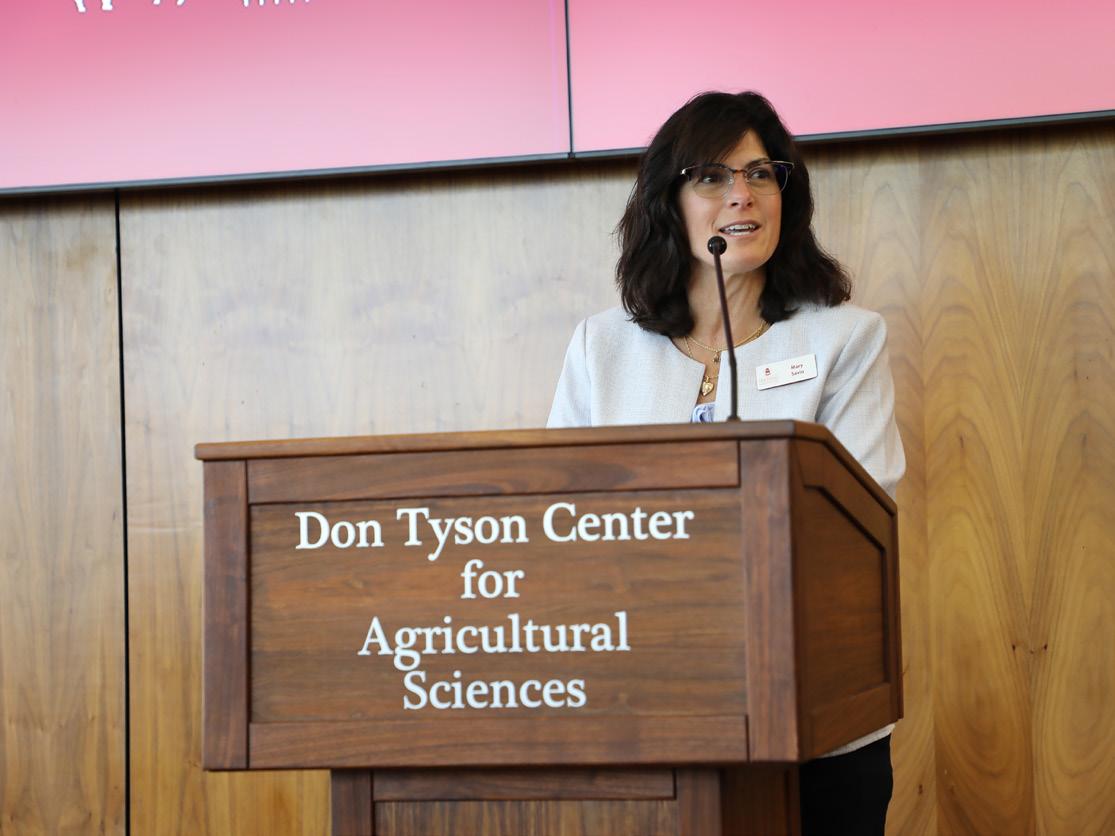
She also has a stellar record of professional service, including serving as faculty senate chair, campus faculty chair, co-director of the Teaching Faculty Support Center and faculty editor of Discovery — The Student Journal of the Dale Bumpers College of Agricultural, Food and Life Sciences. Savin has also landed more than $4.5 million in grants and had more than 80 peer-reviewed publications.
Jean-François Meullenet, head of the experiment station and former interim dean of the college, said, "I am thankful to Dr. Savin for accepting this new leadership role in horticulture. I have had the chance to work with Mary closely over the past year, and I am extremely impressed with her skills. I know she will be an outstanding department head, and I look forward to working with her in that capacity."
"Mary has been an active part of campus leadership, and it is exciting to see her step into this new role," said Jeff Edwards, dean of Bumpers College. "Mary's strong connections with colleagues across campus and throughout the Division of Agriculture are going to be very beneficial in furthering our goal of harmonization and alignment of the three land-grant mission areas.
"She genuinely cares about the success of our faculty, staff and students," Edwards added. "Horticulture is already a strong department. Wayne did a great job, and we appreciate his service and leadership. It will be exciting to see how Mary's leadership builds off of that and makes a strong department even stronger."
John Anderson, director of the Cooperative Extension Service, said he was "excited to have Dr. Savin joining our administrative team as the head of the Horticulture department. She has obviously had a distinguished career to this point as a faculty member at the University of Arkansas.
"She understands the state and the needs of our stakeholders well. I look forward to working with Dr. Savin to carry on, and add to, the Horticulture department's outstanding contributions to our extension programming effort," he said.
"I want to thank Wayne for his leadership and for being willing to spend time to help me in this transition," Savin said. And while leaving the Department of Crop, Soil and Environmental Sciences is bittersweet, "I'm really looking forward to getting started. It's going to be an amazing experience."
< Continued from page 3
You’ve been here as a student, faculty member and administrator. How valuable are degrees from Bumpers College?
My degrees from Bumpers College prepared me very well for my professional career. The courses I took provided a great base of knowledge and skills that I could build on and further my career. More importantly, the individual time and mentoring faculty provided a strong foundation of critical thinking skills that have allowed me to adapt as the needs of my job have changed or as my career advanced. Finally, the family atmosphere of Bumpers College allowed me to get to know my fellow students and build a network of peers that I have relied upon heavily after graduation.
What is your favorite aspect of Bumpers College?
The family atmosphere and dedication to our students. As dean, I am very proud of the collegiality among our faculty and staff.
Any plans or ideas for the college moving forward you can share?
One, continue to strengthen our collaboration with the UA System Division of Agriculture to ensure we are doing the most we can to improve the lives of Arkansans and strengthen the Arkansas economy.
Also, increase the number of two-plus-two agreements with community colleges to help more students complete a four-year degree and make sure students are aware of the Arkansas Transfer Achievement Scholarship program.
What is your favorite outdoor activity?
Running and hiking. I’ve completed eight marathons and over 25 half-marathons. I’m not sure if I will run another marathon, but I did run the Bentonville half. I’m thinking about running Little Rock in the spring.
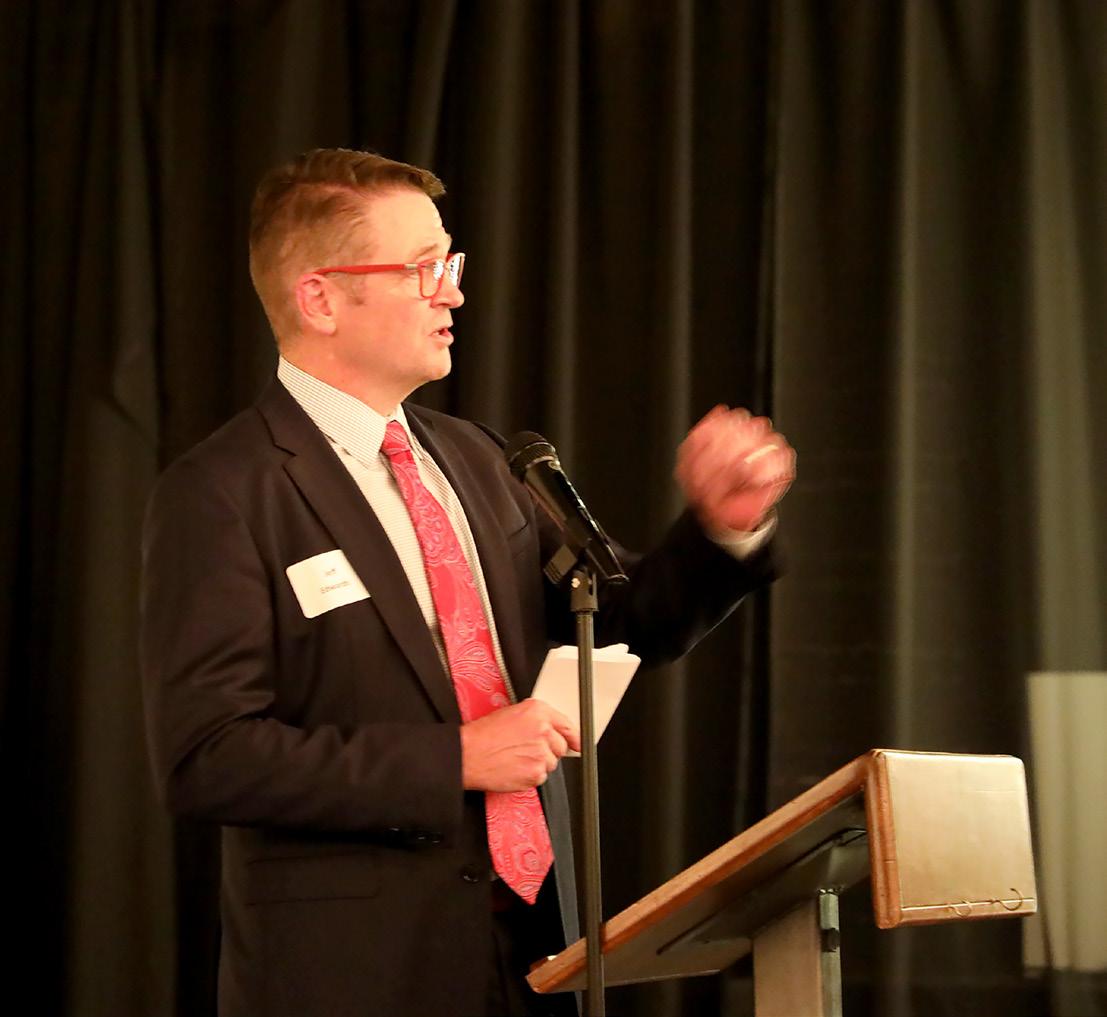
What is your favorite TV show?
The Office and Seinfield. I have a lego replica of the Seinfeld set in my office that was given to me by a colleague when I left OSU. I also have a “World’s Best Boss” (from The Office) mug in my office.
What are your favorite hobbies?
Listening to music and concerts. I love music. When I was in the classroom, students knew that they could easily sidetrack me by talking about music or concerts. I got to see Billy Joel this summer in his final Madison Square Garden residency performance. Sturgill Simpson is coming to the AMP in October and I am very excited. My Spotify playlists are sometimes highlighted on our College Instagram account and I have plans for additional curated playlists in the coming year, such as top songs by Arkansas artists and top “Weird Al” Yankovic songs.
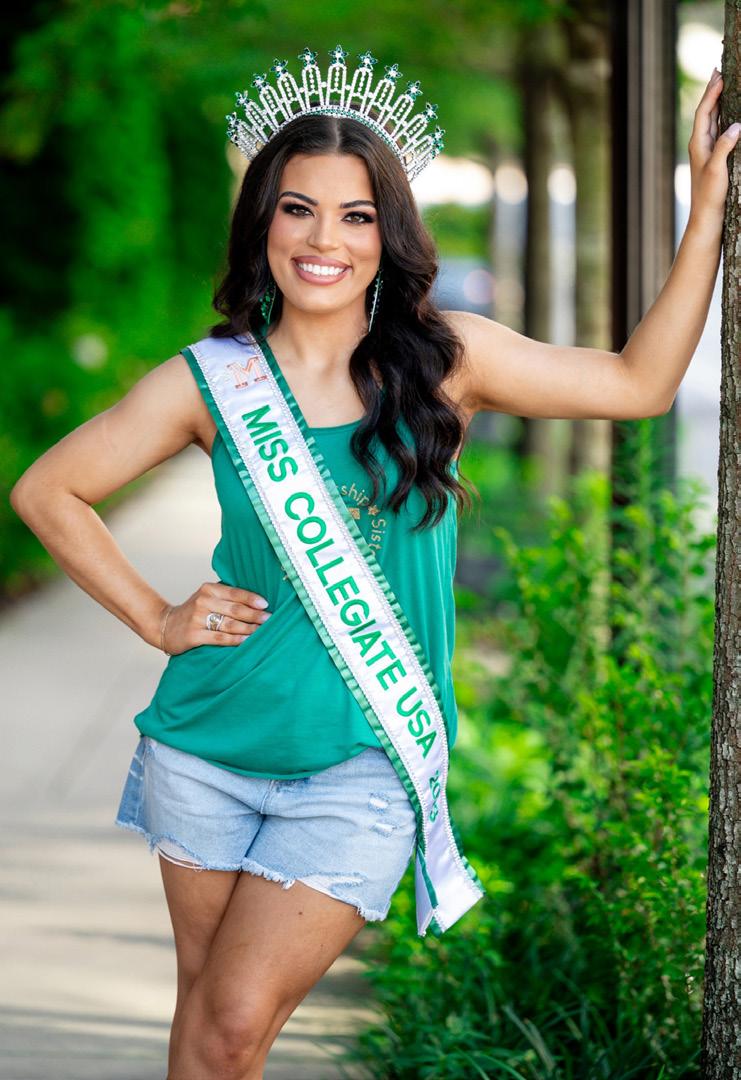

2. U of A System Vice President of Agriculture Deacue Fields (left) poses with agricultural economics graduate students Kit Gambill, Jillian Hyink and Logan Moss at last year’s Agricultural & Applied Economics Association Annual Meeting. The students won AAEA’s national Case Study Contest with a case and recommendations centered around increasing farmer adoption of a digital support tool.
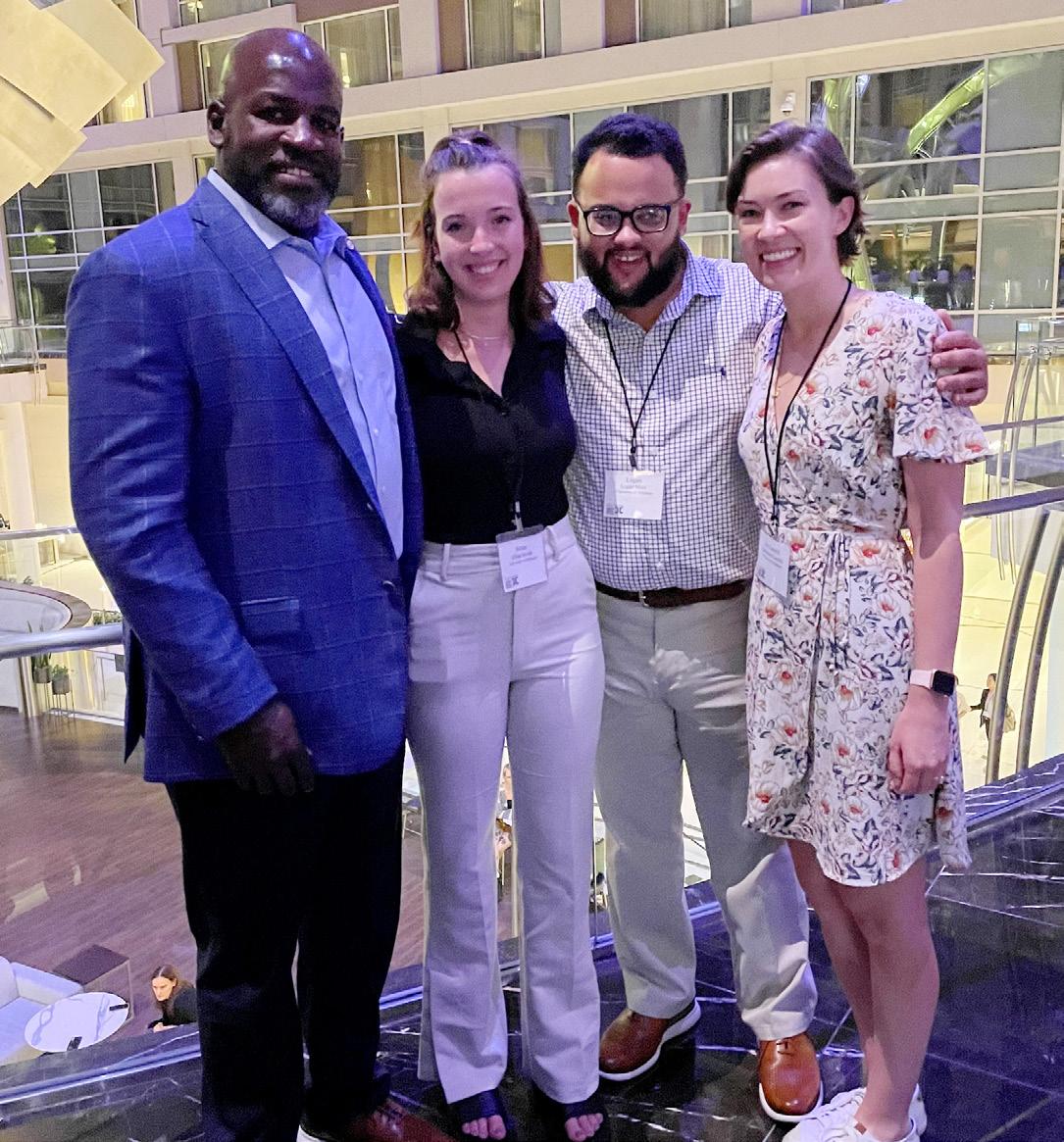
1. Jess Hall, an agricultural and extension education master’s degree graduate, was crowned Miss Collegiate USA for 2023 in Greenville, South Carolina, last July. Hall competed as Miss Arkansas Collegiate USA, was working as a marketing and communications intern with Agriculture Future of America and represented the pageant's platform of "Making College Affordable: Reducing Student Loan Debt." She was a graduate research and teaching assistant in the Department of Agricultural Education, Communication and Technology. She received a $40,000 scholarship to Marymount University in Arlington, Virginia, a prize package worth over $50,000 to include a Miss Collegiate USA cash scholarship, a $1,000 scholarship from the Thomas M. Green Memorial Scholarship Fund, travel and photo shoot opportunities, local and national sponsor gifts, a sisterhood trip to Walt Disney World and a number of personal appearances.
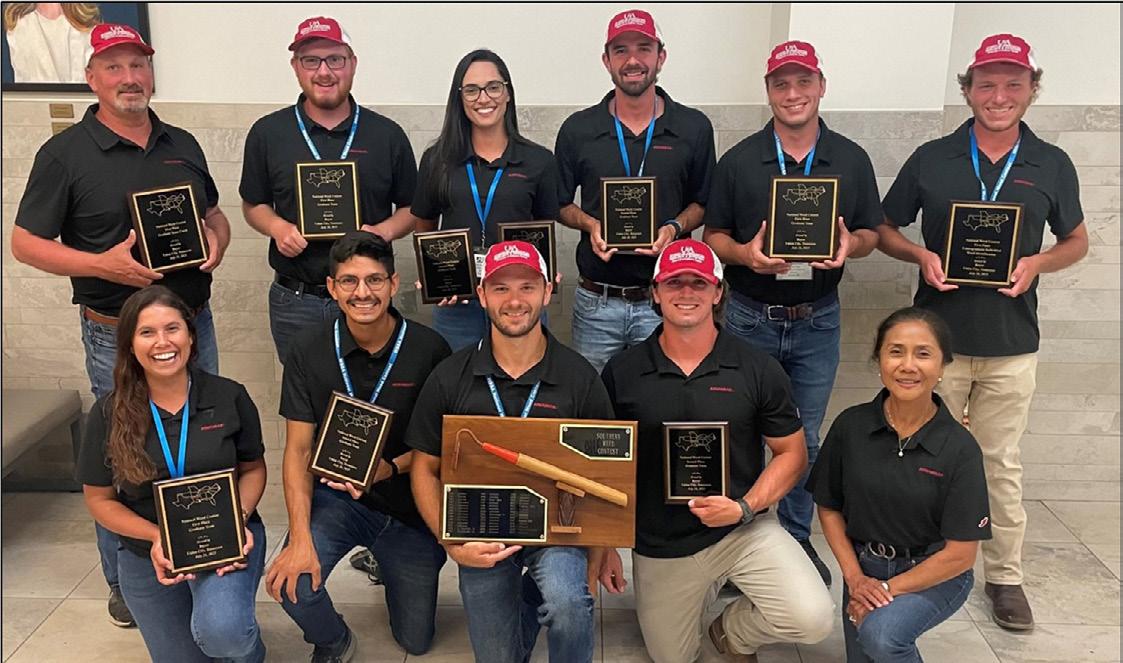
3. The weed science team, all students in crop, soil and environmental sciences, won the 2023 National Weed Contest held in Union City, Tennessee, last summer. The group of graduate students, Tristen Avent, Pamela Carvalho-Moore, Jared Smith and Sam Noe, also won the Southern Weed Science Society regional contest. Sixty-seven teams and 217 students competed in the finals. The teams were coached by professor of weed physiology and molecular biology Nilda Roma-Burgos and distinguished professor and Elms Farming Chair of Weed Science Jason Norsworthy. Smith led the way for the national championship squad with regional and national individual titles in the Herbicide Symptomology and Weed Identification categories. He was the topranked individual in both the regional and national contests. Avent won the Written Calibration division at both the regional and national levels, and tied Smith for first in the Herbicide Symptomology category.
4. Natalie Bartholomew, First Community Bank community president for Northwest Arkansas, was honored by the American Bankers Association as a recipient of its 2023 ABA Emerging Leader Awards recognizing bank leaders committed to the highest standards of achievement and service to their industry and local communities. Winners were selected based on dedication to the profession, inventiveness, leadership skills, mentoring ability, personal integrity, tenure at the bank and broader commitment to a career in banking, sustained career progress and academic training. She earned her bachelor’s in agricultural business and master’s in agricultural economics from Bumpers College. She founded the Girl Banker Platform in 2017 as an advocate for women in banking and young women considering careers in banking.
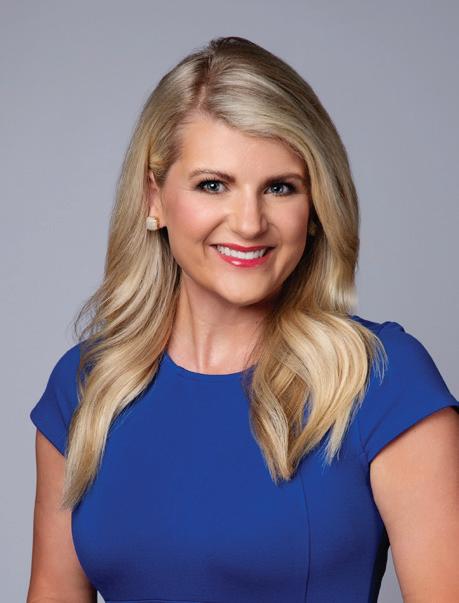
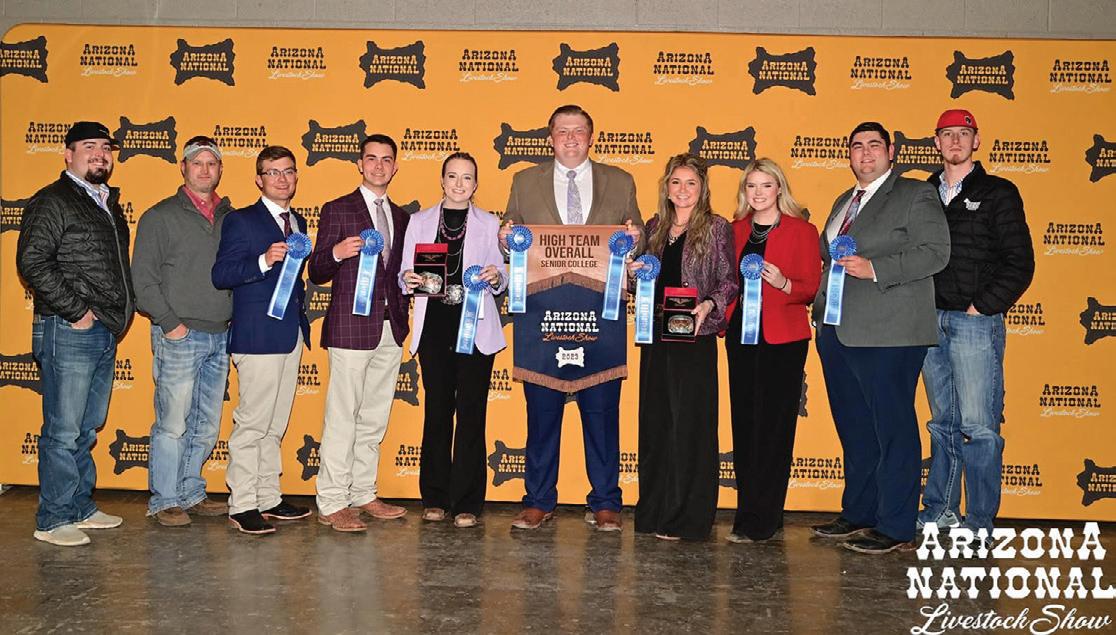
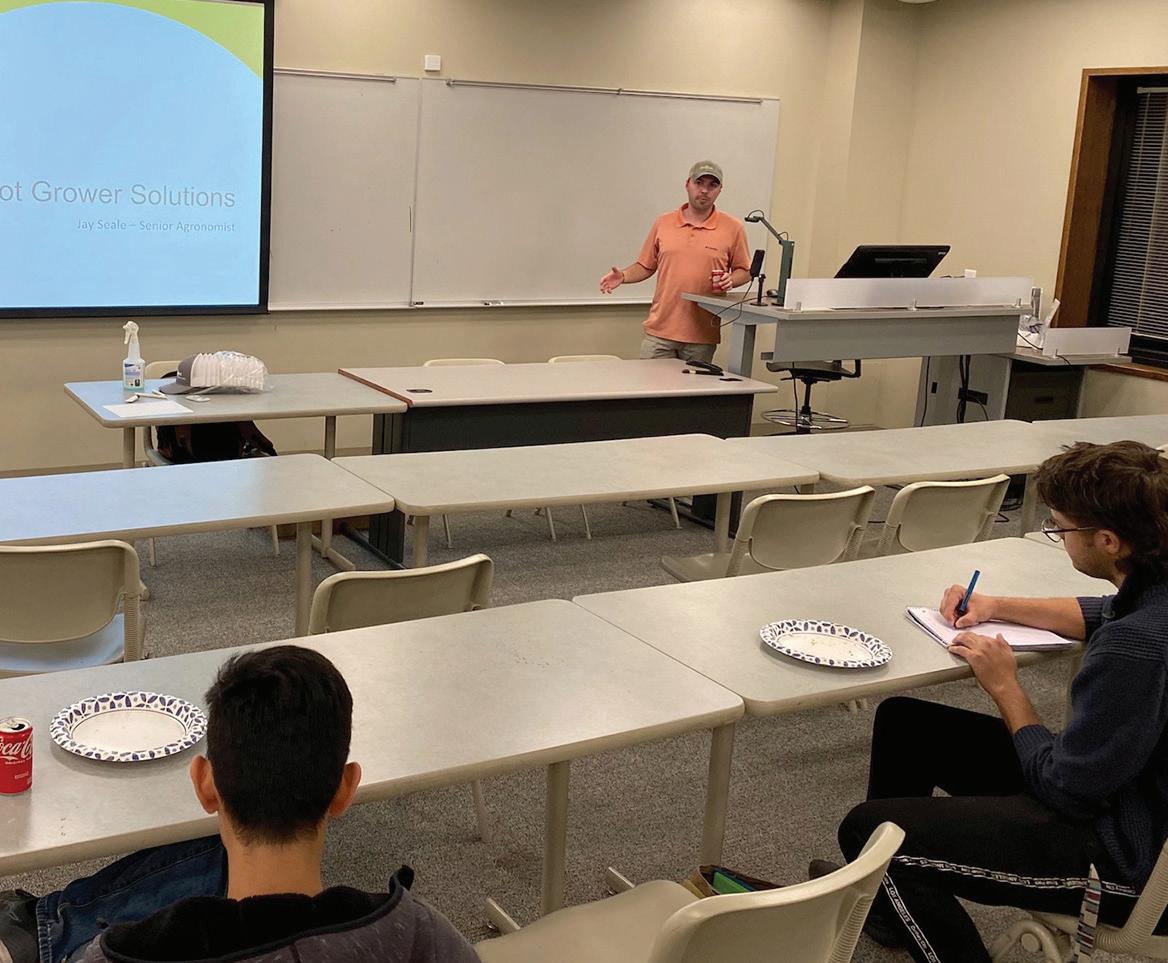
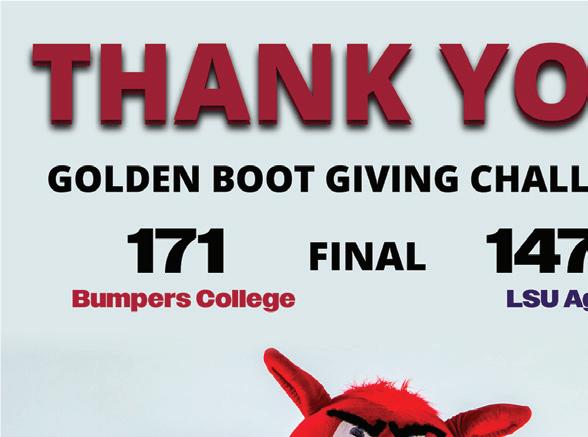
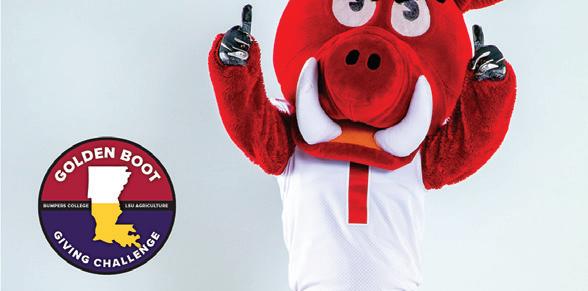

5. The livestock judging team, made up of students in animal science, swept the top seven individual spots at the Arizona National Livestock Judging Contest in December: Kelly Duggins, Thomas Owings, Aaron Mahan, Emma Richards, Hannah Dozier, Carson Hoth and Tyson Kimble. 1 7 5 6 4
6. Jay Seale, a 2017 graduate in crop science, was a guest of the Agronomy Club last fall. He talked to students about his roles as a senior agronomist for Simplot Grower Solutions, and gave presentations to students in Intro to Plant Science and Honors Environmental Science classes about herbicides and sustainable practices in commercial agriculture. (photo by Kelsey Greub)
7. Bumpers College won its fundraising challenge last fall against LSU's College of Agriculture. The colleges squared off in a fundraising competition in conjunction with the Razorback-Tiger football game. The "Golden Boot Giving Challenge" crowdfunding contest was based on total number of donors with donors counting once for gifts in any amount, but at a minimum of $5. Bumpers College won 171-147. Supporters raised $2,717, which is helping fund student scholarships. "The goal of this challenge, on both sides, is to engage new donors who are not often reached," said Dan Miller, Bumpers College's director of development and external relations.
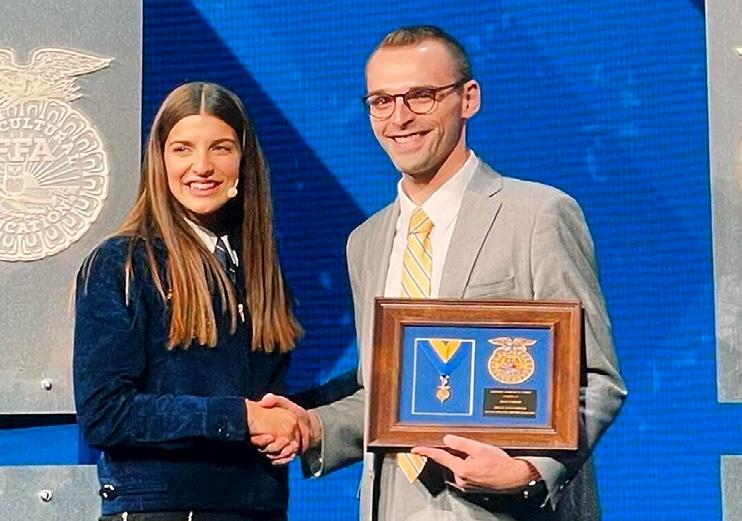

9. Sydney Johnson, a hospitality management graduate last year, published a guidebook for her honors project, A College Girl's Guide to Fayetteville, AR: Building Culture, Confidence & Community at the University of Arkansas. An Austin, Texas, native, Johnson experienced moving to Northwest Arkansas for college and learning what it has to offer. The goal of the project is to "ease loneliness and give information while giving back to the city," according to Johnson. With 125 pages and categories such as "For the Foodies," "Things to Do'" and "Encouragement & Advice," there is a wide variety of information included. The book is available for purchase in local stores and on Amazon.

8. Sam Harris, a Greenbrier native, received an Honorary American FFA Degree, considered the highest FFA honor, during the National FFA Convention & Expo in Indianapolis last year. Harris received the award due to his work establishing the first Congressional FFA Caucus while serving as the Agricultural Policy Advisor to United States Representative Jimmy Panetta. “I owe so much to FFA,” Harris said. “It truly has been a launchpad for much of my professional and educational careers.” Harris served as Arkansas State FFA President in 2015-16. He earned his bachelor’s degree in agricultural business with a minor in agricultural leadership in 2018. He was a Truman Scholar in 2017 and a 2018 U of A Senior Honor Citation awardee. He now lives in Washington, D.C., and handles federal and state affairs for United Natural Foods, Inc., which is the largest grocery wholesale distribution company on the continent.
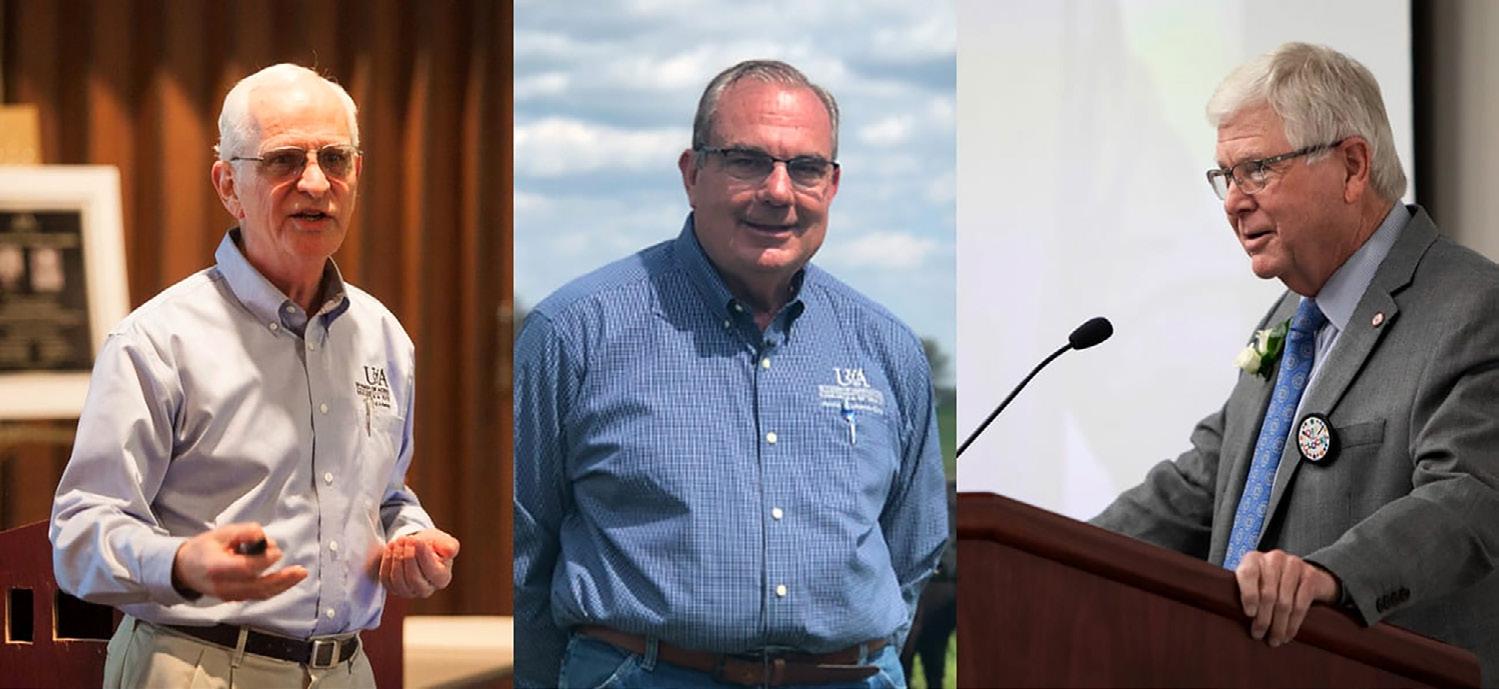
10. Fred Bourland, Charles Looney and Mark Cochran (L to R) were inducted into the Arkansas Agriculture Hall of Fame earlier this year. All have Division of Agriculture connections, and direct ties to the U of A and Bumpers College. Bourland earned his bachelor and master’s degrees from the U of A, in agriculture and plant breeding, respectively. He has been a member of the faculty since 1988, and is a professor of plant breeding and genetics in our Department of Crop, Soil and Environmental Sciences. Prior to becoming vice president for agriculture for the University of Arkansas System Division of Agriculture, Cochran was a member of the U of A faculty and served as head of our Department of Agricultural Economics and Agribusiness. Looney earned bachelor and master’s degrees in animal science from the U of A, and is an extension specialist with the Southwest Research and Extension Center. He is a professor of genetic improvement in cattle, serving through our Department of Animal Science since 2018. (photos by U of A System Division of Agriculture)
11. Mike Looper (right), head of the Department of Animal Science with appointments within Bumpers College and the UA System Division of Agriculture, received the Distinguished Service Award from the American Society of Animal Science Southern Section last year. Looper is a two-time Bumpers College graduate, earning bachelor’s and master’s degrees in animal science. (photo by Justin Bartlett)
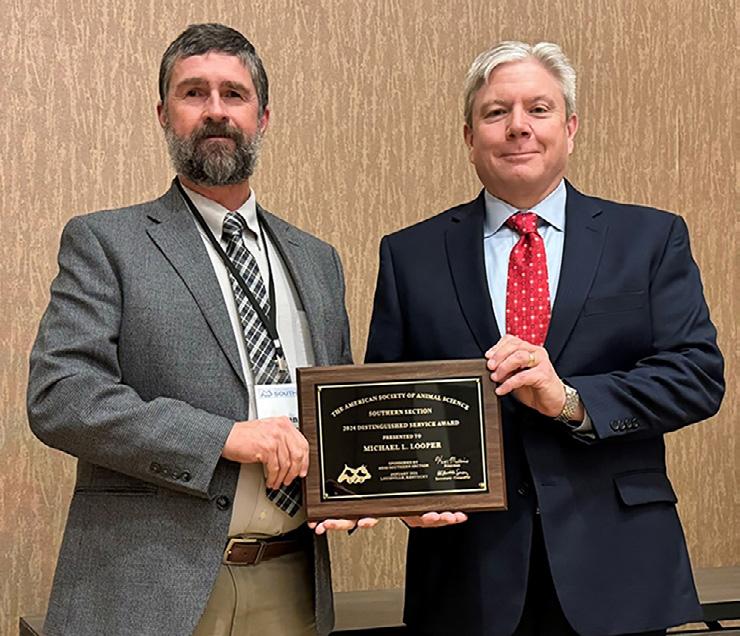
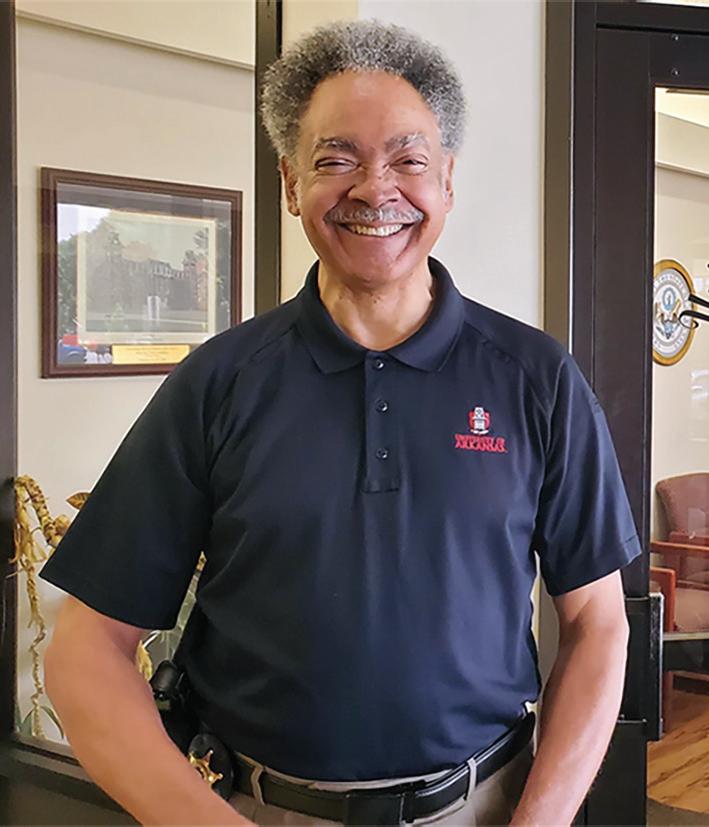
12. Gary Crain, captain of support services and public information officer retired from the U of A following a 45-year career in January. After graduating from the Arkansas Law Enforcement Training Academy in 1976, he relocated to Fayetteville in 1978. Crain has been a fi xture on campus and at athletic events, providing security at men’s and women’s basketball, track, volleyball and football events. He earned a bachelor’s degree in agricultural, food and life sciences in 2007. (photo by Rachel Gerner)
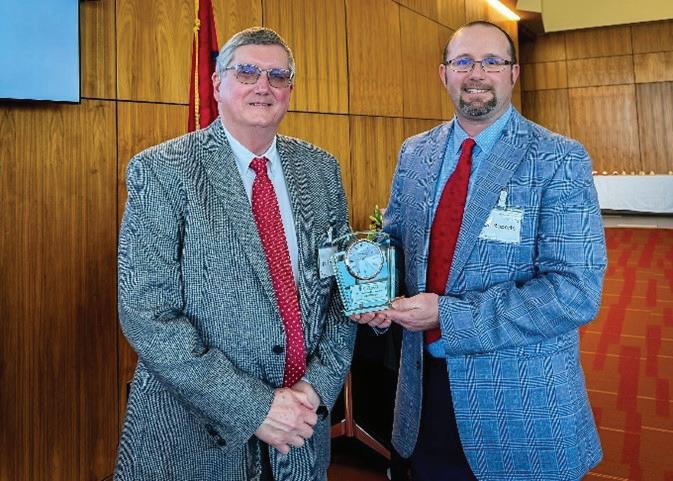
13. Nathan McKinney, who served as associate vice president of agriculture and assistant director of the Arkansas Agricultural Experiment Station since August 2012, as interim director of the Rice Research and Extension Center in Stuttgart from 201618 and interim director of the Southwest Research and Extension Center in Hope from 2019-21, retired in March after 16 years with the UA System Division of Agriculture. Among his accomplishments were making the Division more competitive for federal funding and helping establish the TREAT program, an orientation for new faculty members.
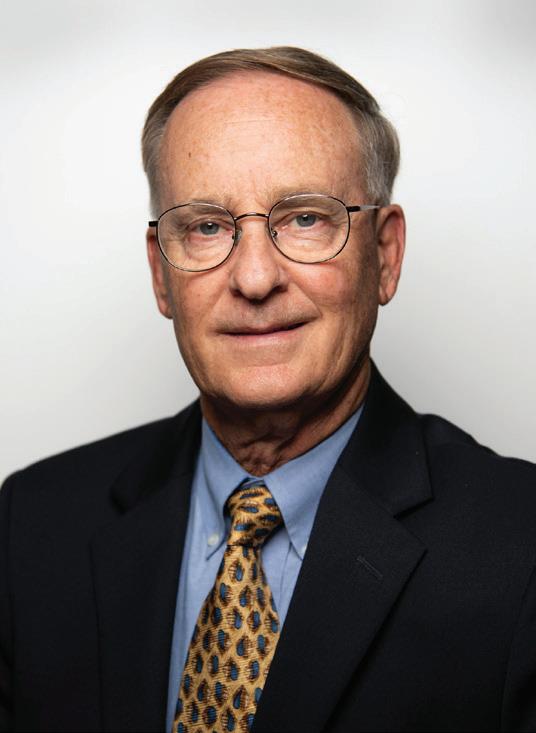


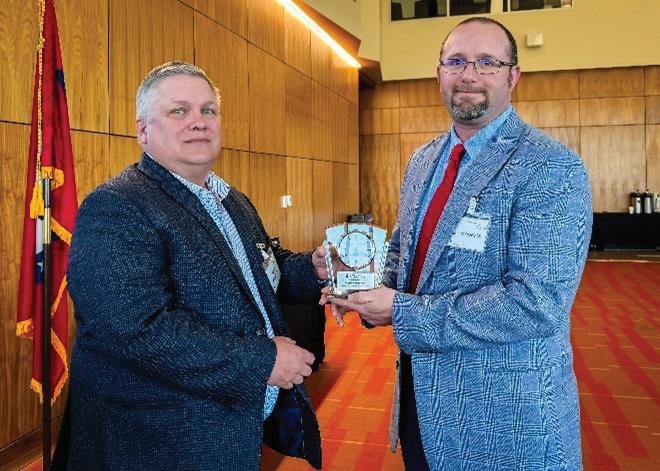
14. Brittany Allen, a two-time competitor on Bravo TV's Project Runway and an alumna of the apparel merchandising and product development program, emceed this year’s Enclothe: En Soiree fashion show, which features garments designed and made by students. Allen, who has her own clothing line, finished in the top six during the 2020 Season 18 competition and was a finalist during the Project Runway: All-Stars contest in 2023.
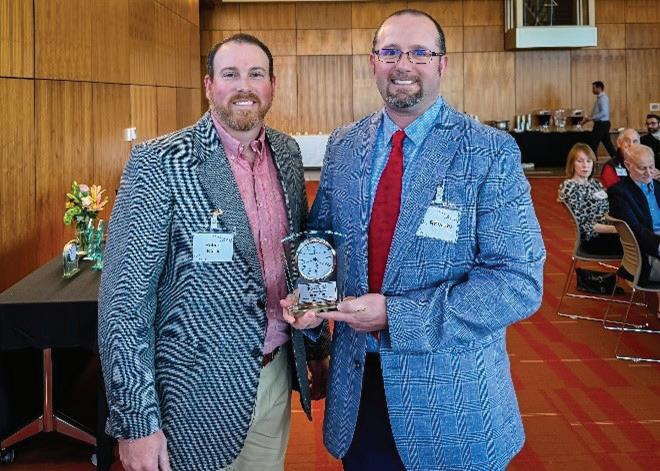
15. From the Department of Crop, Soil and Environmental Sciences, Mike Phillips was named Outstanding Ph.D. Alumnus for this year, Edgar Mersiovsky Outstanding M.S. Alumnus, Robert Rorie Outstanding Young Alumnus and Jody Davis Friend of the Department. Phillips is director of the Alabama Cooperative Extension System at Auburn University. Mersiovsky is associate director for soil program management for the Soil and Plant Science Division with the USDA-Natural Resource Conservation Service. Rorie is a research operations lead at the Corteva Research Facility in West Memphis. Davis is director of student records in Student Services for Bumpers College. 12 13 14 15
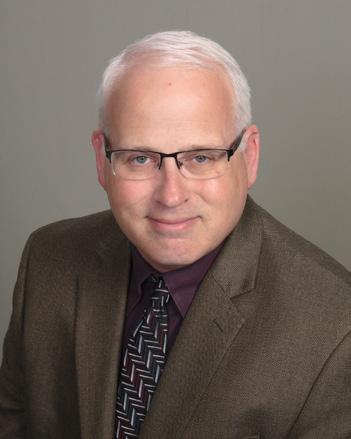
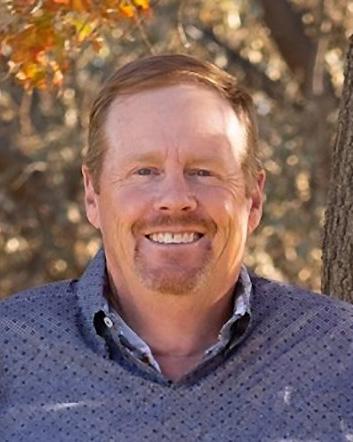
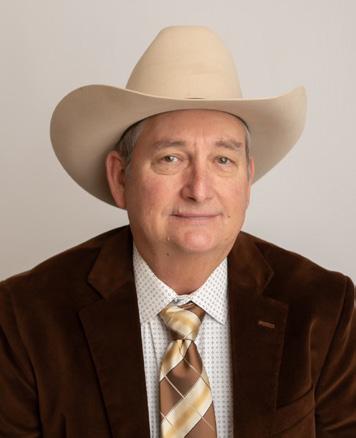
16. From the Department of Animal Science, Jim Turner was named this year’s Ph.D. Graduate of Distinction, Tom Edrington the M.S. Graduate of Distinction and Don Hubbell the B.S. Graduate of Distinction. Turner is director of SulutionsN, working with a full portfolio of nutraceuticals. Edrington is with Diamond V, where he serves as director of beef research and tech services. Hubbell retired in 2022 after serving as resident director of the AAES Livestock and Forestry Research Station near Batesville, a position he held since 2004. In addition, the Eric and Linsay Walker Family in Prairie Grove was recognized as Friend of Animal Science for support of the ranch horse and livestock judging teams.
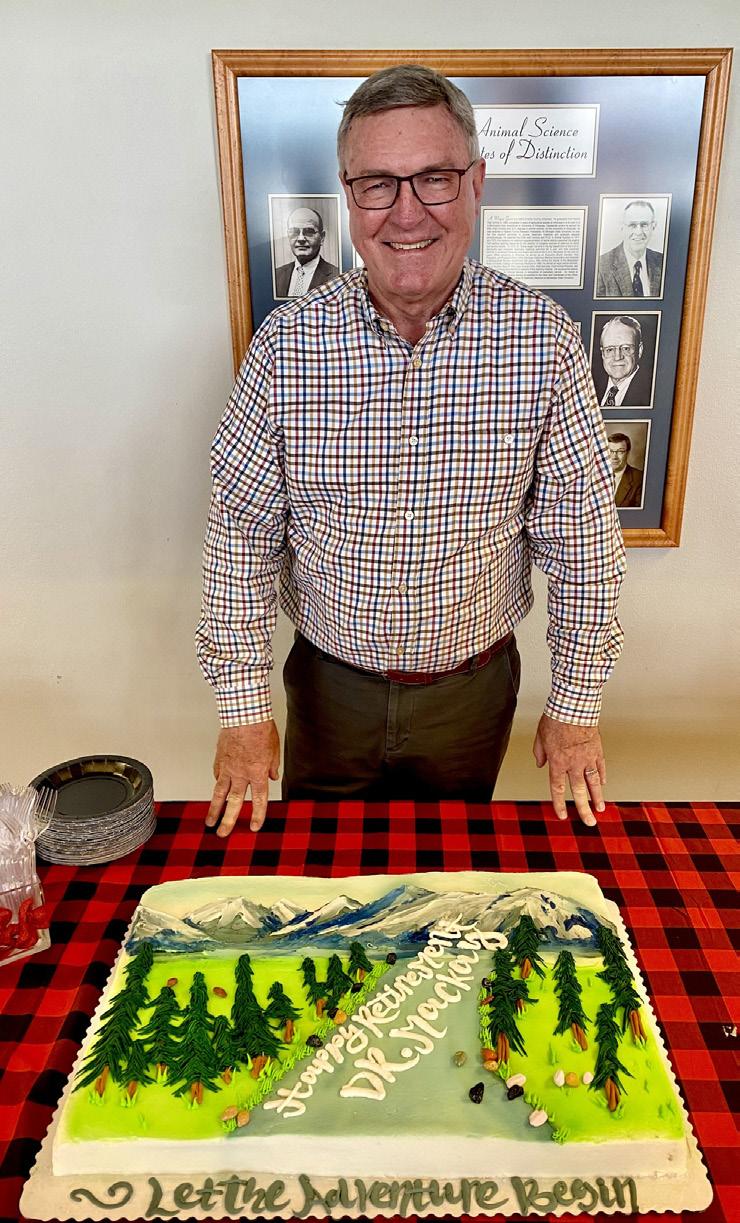
18. After serving 10 years as head of the Department of Horticulture, Wayne Mackay retired at the end of March. Mary Savin was appointed as new head of the department.
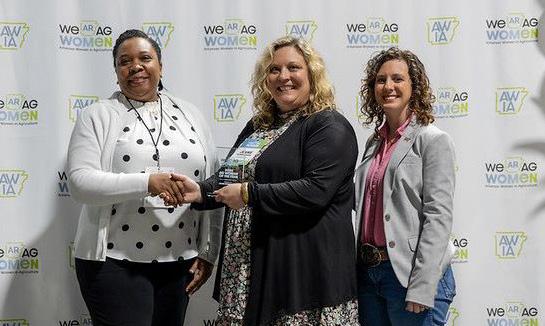
17. Jeanie Rowbotham, Johnson County 4-H extension agent, was named 2024 Arkansas Ag Woman of the Year by Arkansas Women in Agriculture. Rowbotham and her husband, Theron, own and operate Infinity Ranch in Johnson County, where Rowbotham has worked as an extension 4-H agent since 2007. Rowbotham earned her master’s degree in agricultural economics from the U of A.

19. With a newly discovered poultry pathogen named in his honor, Billy Hargis has a permanent place in the halls of science. The pathogen also has a permanent place on Hargis. Eimeria hargisi is a parasite discovered by the Ontario Veterinary College at the University of Guelph following studies of a recurring disease at a commercial chukar partridge farm in Ontario, Canada. Hargis, distinguished professor of poultry science and director of the John Kirkpatrick Skeeles Poultry Health Laboratory, considers having the parasite named after him an honor. It was named by his longtime colleague and friend John Barta, professor of parasitology at the OVC. Hargis took an image of the microbe to a tattoo artist to have it linked in ink. "John Barta is big in the world of parasitology, so this means a lot coming from him," Hargis said. "I wanted to commemorate it a little differently." The Skeeles lab is part of the Arkansas Agricultural Experiment Station, the research arm of the U of A System Division of Agriculture.
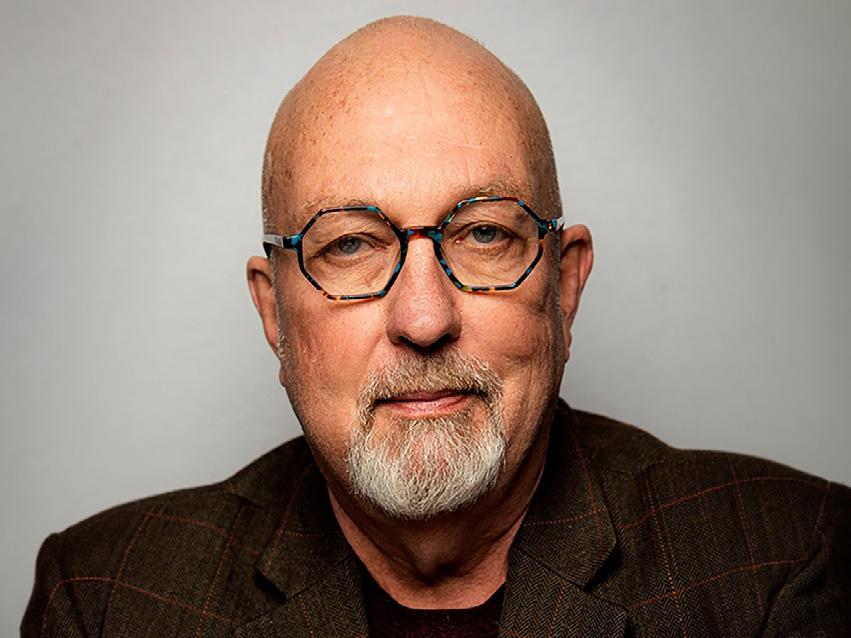
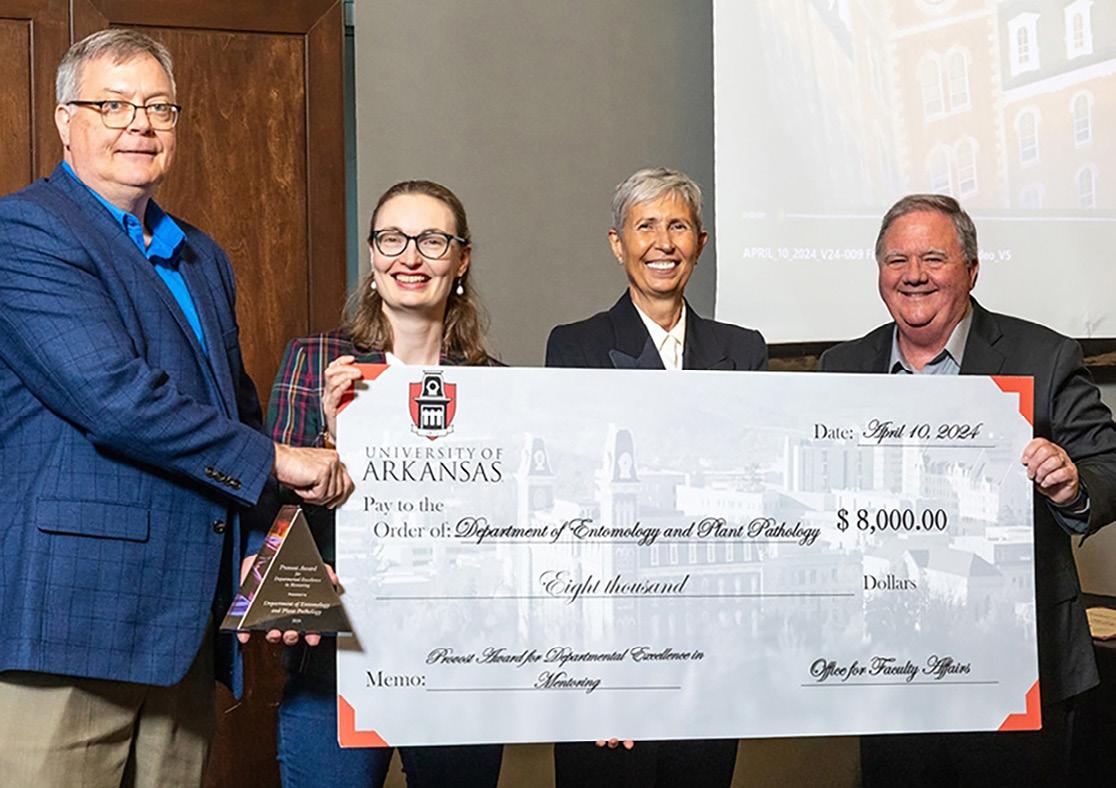
20. This U of A Provost Award for Departmental Excellence in Faculty Mentoring is sponsored by the Office of the Provost and the Office for Faculty Affairs. The award goes to the department or academic unit on campus that best displays excellence in onboarding and mentoring early-career and mid-career faculty. The 2023-24 award was given to the Department of Entomology and Plant Pathology. In addition, Kristen Gibson in food science and Fionna Goggin in entomology and plant pathology were two of five Outstanding Faculty Mentor Award winners, and Mahfuzur Rahman in food science was one of five awarded a Bridge Program Completion Badge.
23. Jefferson Miller, professor of agricultural communications, is helping develop a curriculum for Scotland’s Rural College in Edinburgh which will be the first master’s level microcertificate program specializing in agricultural communications in the United Kingdom. Research revealed need for such a program, emphasizing the importance of journalistic skills to accompany agricultural knowledge. Miller also recently was named recipient of the 2024 Fellow Award by the Association for Communication Excellence.

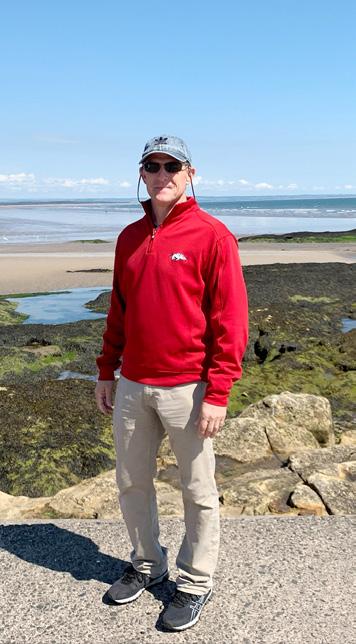
21. The Arkansas Rice Processing Program launched its Terry Siebenmorgen Scholarship at the 30th Industry Alliance Meeting this past summer. Siebenmorgen was known around the globe for his work in rice processing. He established the Rice Processing Program in 1994 to address issues in the U.S. rice industry through scientific research. Siebenmorgen, a distinguished professor of food science who began his faculty career in 1984, passed away on Nov. 22, 2020.
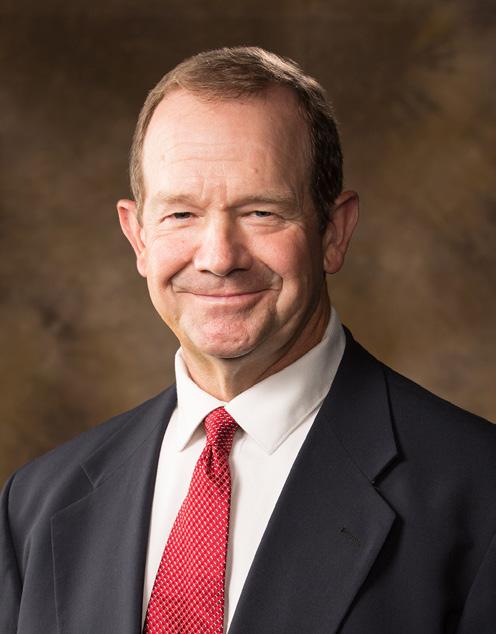
The Terry Siebenmorgen Memorial Scholarship will be awarded to undergraduates majoring in food science, with a preference to students pursuing rice-related research or work. The UA System Division of Agriculture Rice Processing Program hosted the meeting, which brought together 135 guests from a cross section of the rice industry.
22. Will Dockery, an environmental, soil and water science graduate, was recognized as the 2024 individual winner of the Mayor’s Environmental Stewardship Award presented by Fayetteville Mayor Lioneld Jordan. It recognizes excellence in environmental stewardship through sustainable practices, programs or projects. Dockery served as a member of the Urban Forestry Advisory Board, and worked on amendments to the city’s tree and landscape codes to increase tree protections and strengthen landscaping standards.
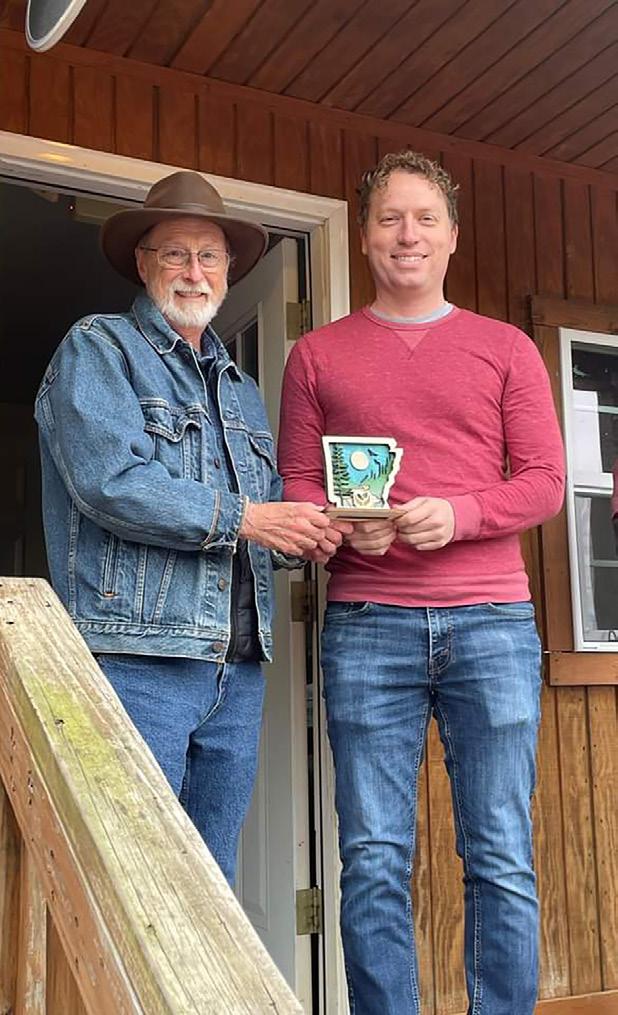
24. The Arkansas Alumni Association recognized Anna Mathis of Valley Springs with the female 2024 Senior Honor Citation, recognizing outstanding academic achievement, leadership skills and cocurricular engagement at the U of A. The AAA has conferred the citation on two seniors in each graduating class since 1965. Mathis was awarded the prestigious Harry S. Truman Scholarship for 2023. The scholarship provides $30,000 for graduate school. Mathis was one of 62 scholars selected from 705 applicants at 275 institutions. This year, she was recognized as one of the college's senior scholars, and received the John W. White Outstanding Student award. She is a 2024 honors graduate in agricultural education, communications and technology, and plans to pursue a career in rural development and international agriculture development, focusing on food security.


25. ENCLOTHE: En Soiree, our annual fashion show featuring garments designed and made by apparel merchandising and product development students, was held at Crystal Bridges Museum of American Art. The event highlights the garments and students who created them, as well as the business, sustainability and merchandising aspects of what students learn while designing their items. Student designers were in the Fashion Show Theory and Production class taught by AMPD teaching assistant professor Sarah Hixson and/or Advanced Apparel Production with senior instructor Stephanie Hubert. (photos by Ariel Scholten)
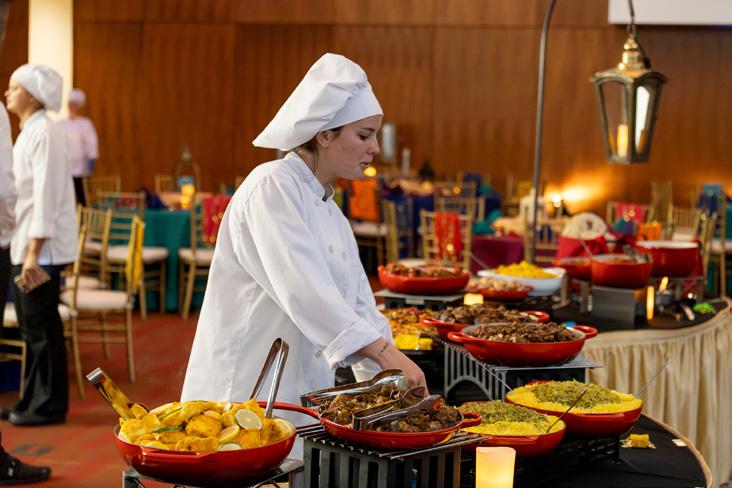
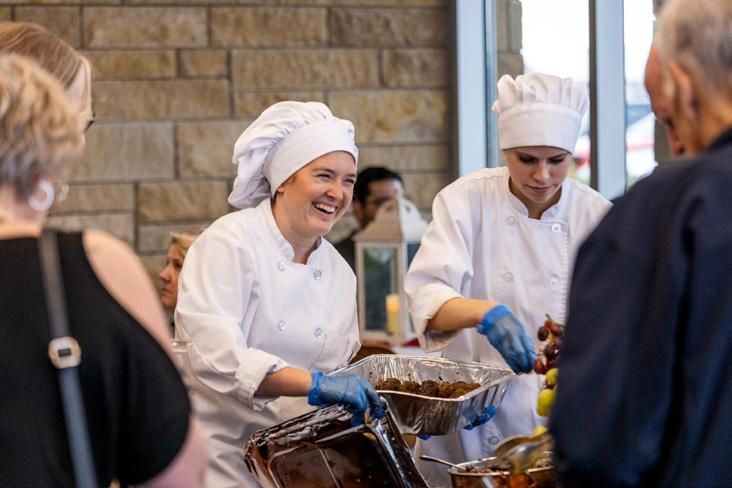
26. SMASH 2024 was held in the spring with the theme “1001 Nights.” Students Mastering the Art of Southern Hospitality is an annual networking fundraising event put on by students in hospitality management. Students from two classes plan and carry out all aspects of the event. A SMASH class managed planning and organization under associate professor Kelly Way, assistant professor Nick Johnson and student relations coordinator Suzanne Rhoads. A cooking lab class, Cultures and Cuisines of the World, was in charge of the meal, under instructor Lobat Bayyari.
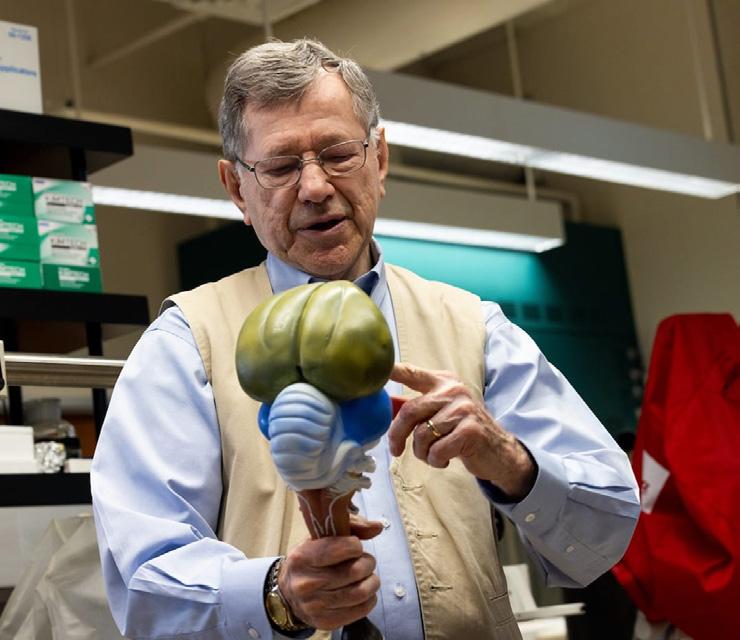
27. Wayne Kuenzel, professor of physiology and neuroendocrinology in the Department of Poultry Science, was named a Fellow of the American Association for the Advancement of Science for contributions to science. He teaches courses on physiology and neuroendocrinology. Kuenzel has helped map the distribution of neurons that regulate the avian reproductive system and investigated what makes birds’ behavior responsive to changes in seasonal light cycles. 25 26 27 28
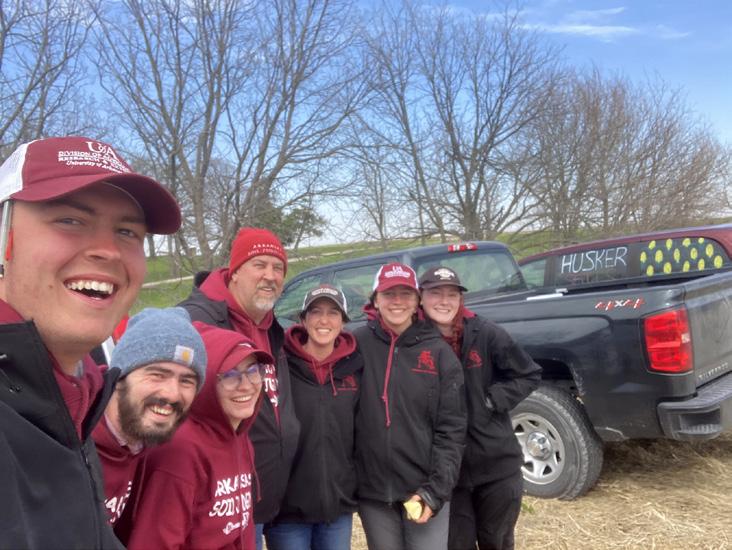
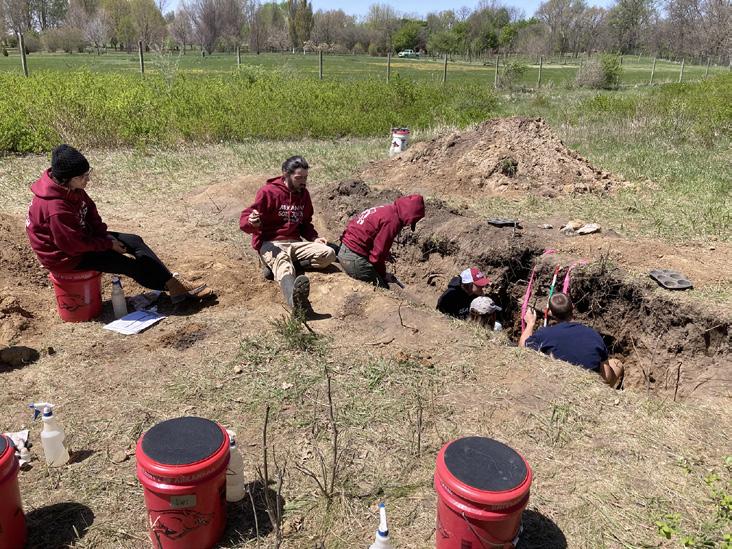
28. The soil judging team competed in the National Soil Judging Contest in April and recorded a top 10 finish. The group, students in crop, soil and environmental sciences, placed 10th out of 25 teams competing in the finals. The team, coached by university professor of applied soil physics and pedology Kris Brye, also finished fifth in the team-judged pit portion of the contest. Team members include Jonatha Brye, Katie Jansson, Claire Meara, Noah Solomon, Sophie Sward and Keara Taul. Individually, Brye was 21st nationally, Sward 45th and Meara 49th. Arkansas has won the Region IV title the last two years and earned a spot in the national finals 12 times in 14 years. Arkansas has back-to-back top 10 national finishes after placing 10th this year and sixth in 2023.

1990s
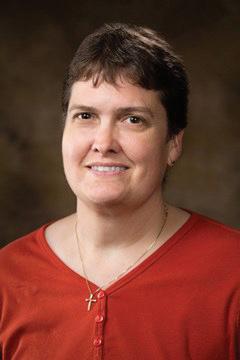
Jody Davis BSA '91 in animal science, was named Friend of the Department of Crop, Soil and Environmental Sciences for 2024. Davis is director of student records in the Student Services Office for the Bumpers College Dean’s Office.
Marc W. van Iersel PHD '94 of Athens (Hull), Georgia, received the Outstanding Research career award posthumously from the American Society of Horticultural Science.
Jennifer Hare James m BSA '94 in agricultural business, was the 2023-24 Outstanding Alumna by the college. She is part owner of H&J Land Co. and a fourth generation rice, soybean and corn farmer.
Eric Thomas Stafne MS '99 PHD '05 in horticulture and plant science, respectively, received the Outstanding Extension Educator Award from the American Society of Horticulture Science. He is an extension and research professor at Mississippi State University’s Coastal Research and Extension Center.
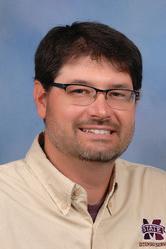
Lance M.
Cheramie
MS '06
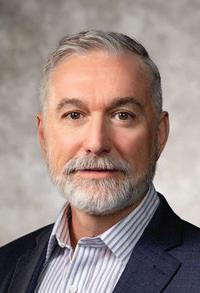
PHD '18 in human environmental sciences (apparel studies) and public policy (sustainability), respectively, received the U of A Paul Cronan Technology Teaching Excellence Award. The award honors Cronan, a founding co director of the Teaching and Faculty Support Center and a long time professor in information systems.
Mengmeng Gu PHD '06 was named vice president and a board member of the American Society of Horticultural Science.
Megan R. Hudgens BSA '08
MS '10 is the owner of Northwest Arkansas Florist along with her husband Andrew. She has been in banking for 17 years and is a recent graduate of the Fayetteville Chamber of Commerce Leadership Fayetteville Class XXXVI.
2010s
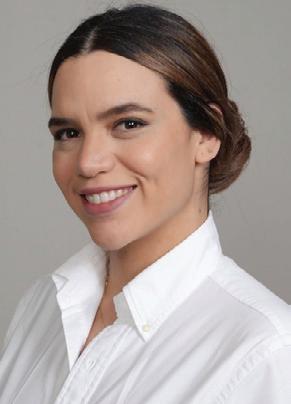
Sara Esther Jarma Arroyo
MS '16
PHD '23 in food science was the winner of the 2022 Institute for Perception Student Award. The annual international award goes to an
undergraduate or graduate student who shows outstanding talent and performance in the field of sensory science, marketing, psychology, economics or related fields. Arroyo is now senior sensory and consumer scientist with PepsiCo Inc. in Plano, Texas.
Derek Wayne Barchenger MS '14 in horticulture received the Early Career Research Innovation and Creativity Career Award from the American Society of Horticultural Science. Barchenger is principal investigator of the National Science and Technology Council’s Disease Resistant Tomato and Pepper for Taiwan and the Philippines Project.
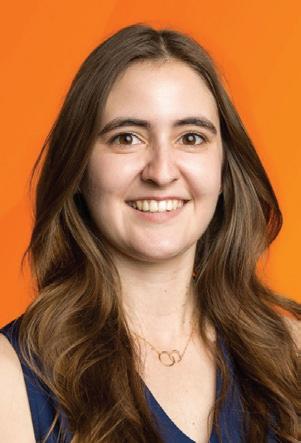
Michaela Day BS ’19 in poultry science, was named to the 2024 Fast 15 by the Northwest Arkansas Business Journal. The list recognizes 20-something professionals “on the fast track to success. Day, who was a member of the Razorback Marching Band Color Guard, relocated to southwest Arkansas from central Illinois when she was 8, and spent her formative years on a 70-acre hobby farm surrounded by livestock. She was active in 4-H and FFA. After graduating, she spent two years at Rose Acre Farms in Indiana, but is now a Heritage breed manager at Happy Egg in Rogers, the largest free-range
egg brand in the U.S. In 2023, she spent six months in Europe learning specialized poultry science methodologies from a world-accredited poultry scientist. Returning to NWA, she developed comprehensive hen breed guides for Happy Egg farmers to improve care standards.
Holley E. Johnson BSHES '11 in hospitality management received the Future Five Award by the Medical Group Management Association at its leaders conference. MGMA recognizes the achievements and efforts of medical administrators through prestigious awards to honor healthcare professionals and this award is given to five people in the United States within the first five years of their career in healthcare management.
Tristen Heath Avent MS '22 in crop, soil and environmental sciences won the 2023 national weed contest as a member of a U of A weed science team. The team also won the Southern Weed Science Society regional contest.
Tanner Austin King BSA '22 in crop science, as a member of a U of A weed science team, placed second individually in the Southern Weed Science Society regional contest.

1970s
(July 1, 2023 – June 30, 2024)
1950s
Jerry J. Ford MS '58, Youngsville, Louisiana, May 8, 2024.
Shelby H. Holder Jr. BSA '54 MS'59, Texarkana, Texas, Oct. 4, 2023.
Boyce L. Stone BSA '52, Gurdon, March 28, 2024.
1960s
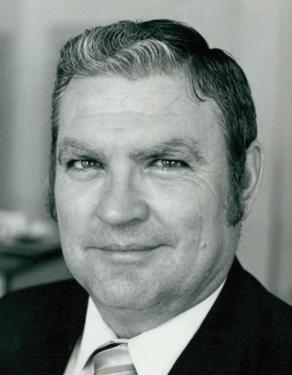
Frederick C. Collins BSA,'63, in agriculture, Prairie Grove, July 10, 2023. Collins was a professor at the U of A for 17 years, teaching and conducting research in agronomy, breeding and genetics. Following his academic career, Collins joined CR Seeds in Bay, Arkansas, for over 10 years where he was instrumental in its growth through his leadership, research and development of unique strains of wheat. Known in his field as “Mr. Wheat of the Mid-South” for developing the most used wheat variety in the region, he was also known for developing an oat variety with the same distinction. He was the recipient of multiple awards from the University of Arkansas, Seed Dealers Association and others for his developments and breeding.
Dorothea Joan Bartelli BSHE '76
MS '79 PSTH '23, Rogers, Dec. 11, 2022.
Elaine Ashley McCutcheon
BSHE '77, Little Rock, July 17, 2023.
Stephen L. Leister BSA '82, Abbott, June 16, 2023.
Marc W. van Iersel PHD '94, Athens (Hull), Georgia, April 20, 2023.
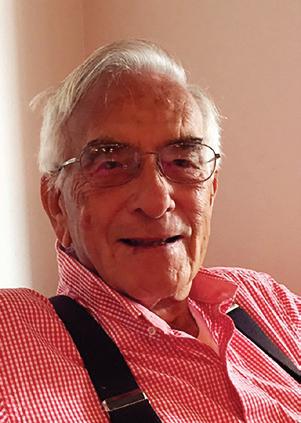
Talmadge Nelson, retired University Professor of poultry science and animal science since 1994, Fayetteville, Dec. 20, 2023. He was 95. A faculty member in both departments, his research involved the study of minerals, and he is credited with some of the original work on phytase to hydrolyze phytase phosphorus in the digestive tract of chickens, making it available for metabolic use. Talmadge was a member of the strategic planning committee for the Center of Excellence for Poultry Science. For many years, he was in charge of the department's scholarship program, served as co-chairman of the Arkansas Nutrition Conference and was
contest coordinator of the National Collegiate Poultry Judging Contest. He also enjoyed mentoring students. In 1980, he was invited by the American Soybean Association and Foreign Agriculture Service of the U.S. Department of Agriculture to travel to Beijing, China, as a part of the first U.S. Agri Trade Show in China. He was a featured expert to discuss how China could improve poultry feeds. He also received research grants from the Arkansas Poultry Federation and Tyson Foods to conduct feeding experiments to solve "weak legs" in chicks. He received the American Feed Industries Nutrition Research award from the Poultry Science Association, recognizing his contributions to poultry research. He graduated from Booneville High School in 1946, joined the Navy, enrolled at the U of A following his Navy service, graduated in 1952, and worked for the Arkansas Plant Board before earning a master's degree from the University of Illinois and a Ph.D. from Cornell University.
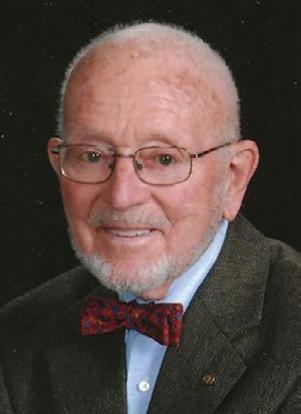
Roy Rom, retired University Professor Emeritus of horticulture, passed away June 15, 2024, surrounded by his children. He was 102. In 1959, Rom joined the U of A as a faculty member in the Department of Horticulture. He served the university in teaching, research and extension services for 30 years. He retired in 1989.
Rom was a renowned fruit breeder and pomologist and enjoyed an impressive career in horticulture. He was revered for his work in tree fruit breeding and taught numerous classes. Specifically, he taught courses in tree fruit science at the undergraduate and graduate levels, and they had a reputation for rigor and extensive content. He served in several officer roles of Gamma Sigma Delta, including the president; a longtime secretary-treasurer of the UA Foreign Student Association; and chairman of the Campus Council and Campus Faculty. He was executive secretary and editor for the Arkansas State Horticulture Society from 1964-89. He was a long-standing secretary of the American Pomological Society and received the APS Wilder Medal for significant contributions to American pomology. The U.S. National Peach Council gave him the Mr. Peach Award for outstanding contributions to peach cultivation in the South. He attended the University of Wisconsin where he pursued a degree in horticulture. During World War II, his academic career was put on hold, and he became a P-51 Mustang fighter pilot instructor. He was honorably discharged as a second lieutenant at the end of the war, after which he returned to college to finish his degree. After college, he met his wife, Margaret (Meg), and after getting married and living briefly in New Haven, they returned to Wisconsin to start a family, and he completed a Ph.D. in fruit crop production physiology at the University of Wisconsin.

Shortly after graduating in 1959, he accepted a position at the U of A. He has been recognized by the University Division of Advancement as a Tower of Old Main for his scholarship support. He is survived by four children, including Curt, University Professor of horticulture.
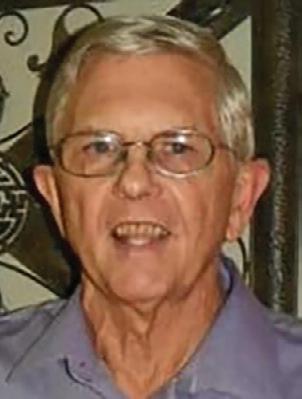
Seth Yarbrough Young, retired Professor Emeritus of entomology, passed away July 17, 2024. He was 83. He served in the Department of Entomology from 1967-03, teaching insect physiology and other courses. His research centered on biocontrol, studying viruses and bacteria that infect insects. He was born June 8, 1941, in Victoria, Mississippi, and married Margaret "Margie" Young in 1961. They were married for 54 years until her death in 2015. He graduated from Auburn University with a Ph.D. in entomology at the age of 24 and moved to Fayetteville in 1967, becoming the youngest professor at the U of A. He enjoyed genealogy, hunting, fishing, gardening and his annual trip to the White River with family and friends, and was a member of Central United Methodist Church in Fayetteville.
m – annual member
lm – life member
fs – former student
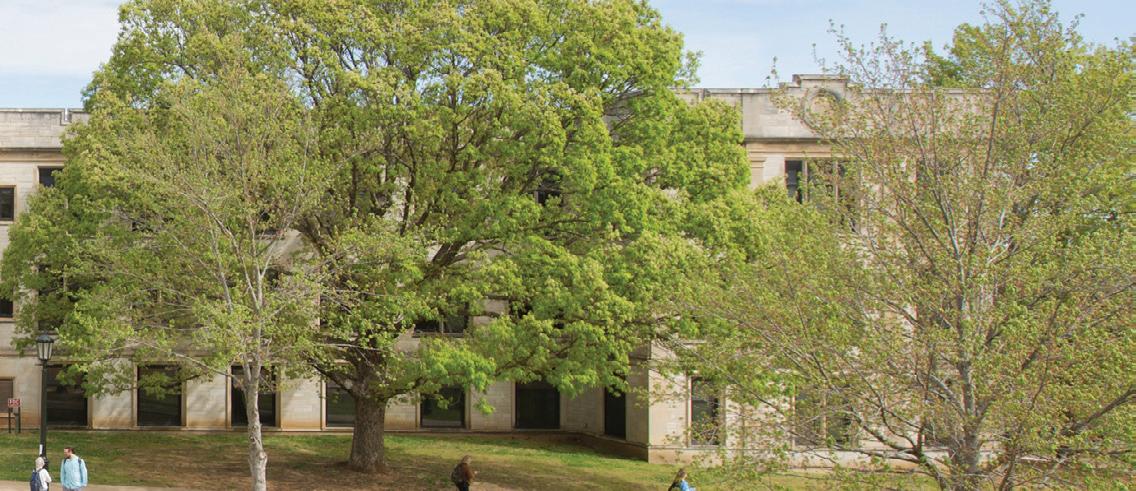
< Continued from page 5
“Everyone has been really happy with how the agreement has come about and how its provisions are working. I think it’s helped alleviate a lot of anxiety.
“Keep in mind, this is a living document and we will be revisiting it from time to time to make amendments and other revisions. There is always room for improvement and better ways to tackle issues faced by both UA-Fayetteville and the Division of Agriculture.
“We are always looking to see how this agreement and our two intertwined organizations can operate more seamlessly.”
Send updates to the Office of External Relations, extrel@uark.edu, fax to 479-575-6890 or mail to:
Bumpers College Alumni Society Office of External Relations
E202 AFLS Building
1 University of Arkansas Fayetteville, AR 72701-1207
You can also email notes to the U of A Alumni Association at records@arkansasalumni.org
Bumpers College alumni, here’s how new Dean Jeff Edwards encourages you to connect with and be involved with your college:
campus often.
We have several tailgating events in the fall and it is always great to catch up with alumni. Stop by, even if only for a few minutes.
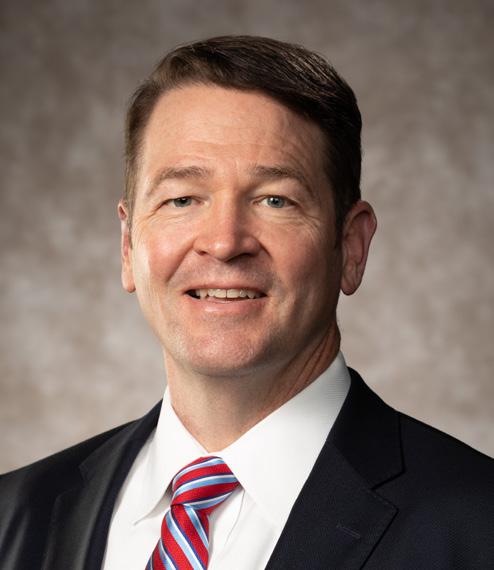
A Bumpers College degree is a great start to a rewarding career. If you know of a young person considering college, help Laykyn (Rainbolt, recruiting coordinator, 479-575-2253, lrainbol@uark.edu) and our Bumpers recruiting team connect with them.
Of course, we are always interested in endowing a scholarship or getting funding for a faculty Chair; however, I want our alumni to realize that the $50 or $100 you send in as part of any fundraising drive also has an impact. Collectively, these funds add up and we use them in a variety of ways to enhance the student experience and move forward with our College goals.
Consider a career in agricultural, food and life sciences. Whatever your interest, there is a way to use your talents to help solve real-world problems with a major in AFLS. Interested in math or computer science, great! Use that interest to help develop the next generation of precision agriculture tools and technologies. Or work alongside one of our world-renowned geneticists or crop breeders to identify genes to increase sustainability in agricultural systems. Enjoy entertainment, events and people, then hospitality management could be for you. Interested in fruits or vegetables? Breed new varieties in horticulture or go into food science to create new products.
Kickoff 3:15 p.m.
19 Kickoff 5 to 7 p.m.
16
Kickoff 11 a.m.
Tailgate 8 a.m.
